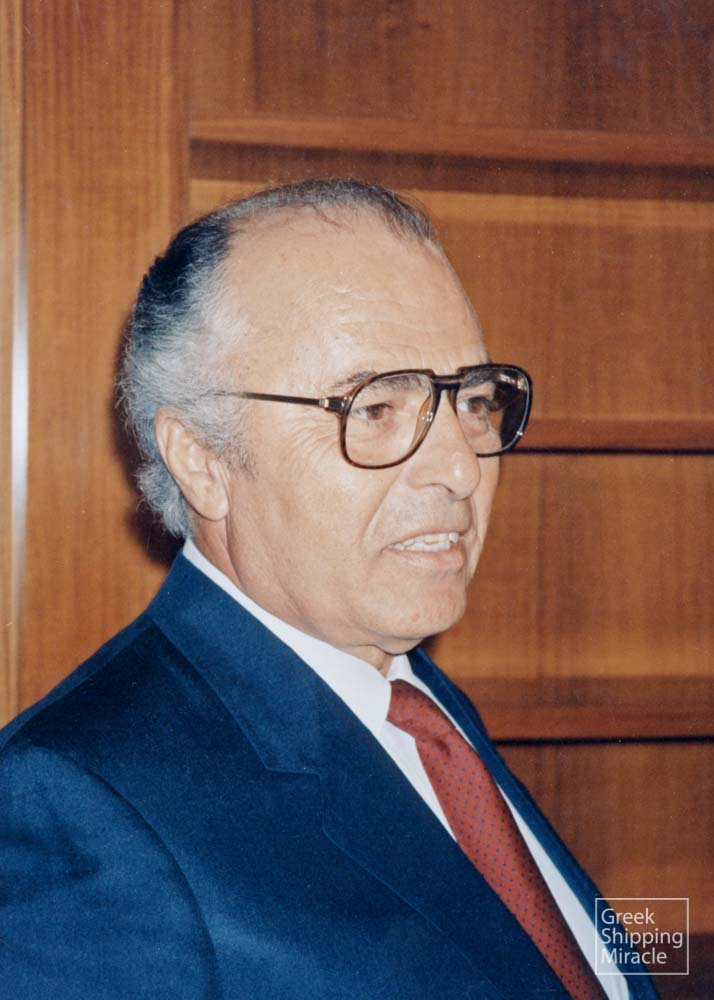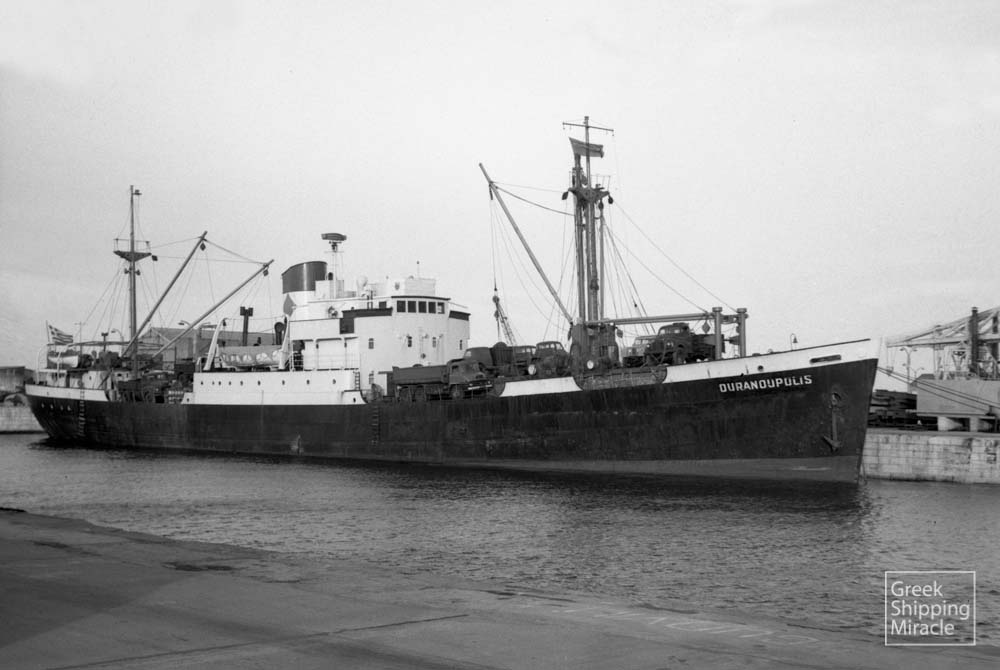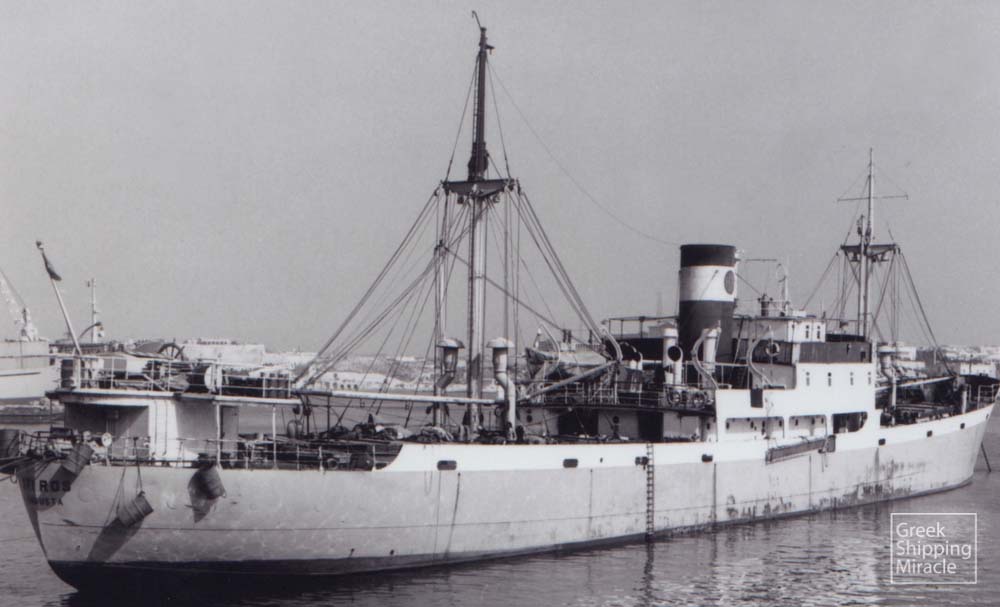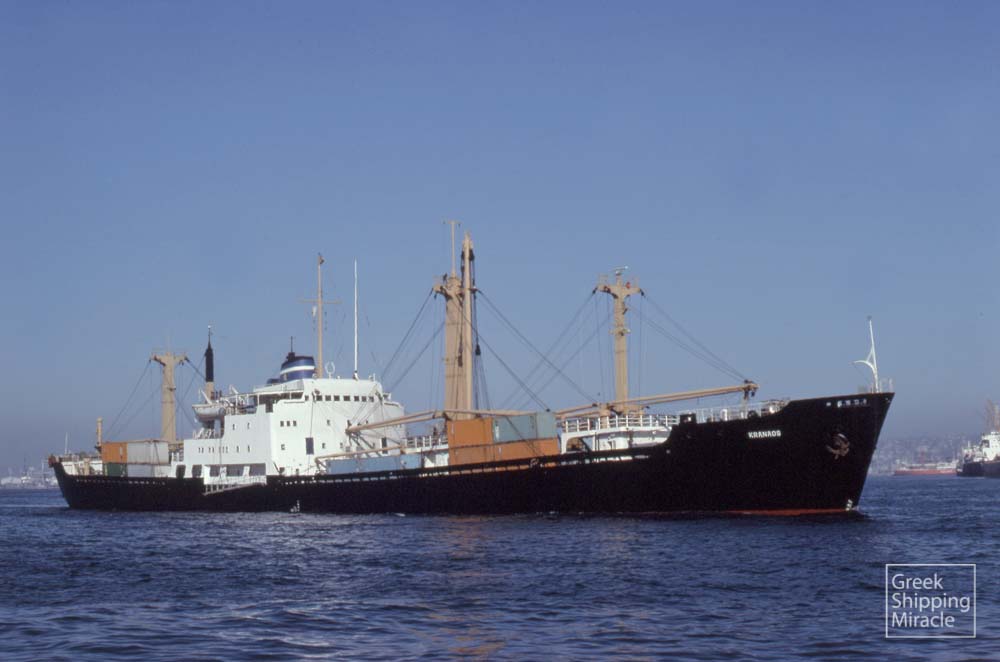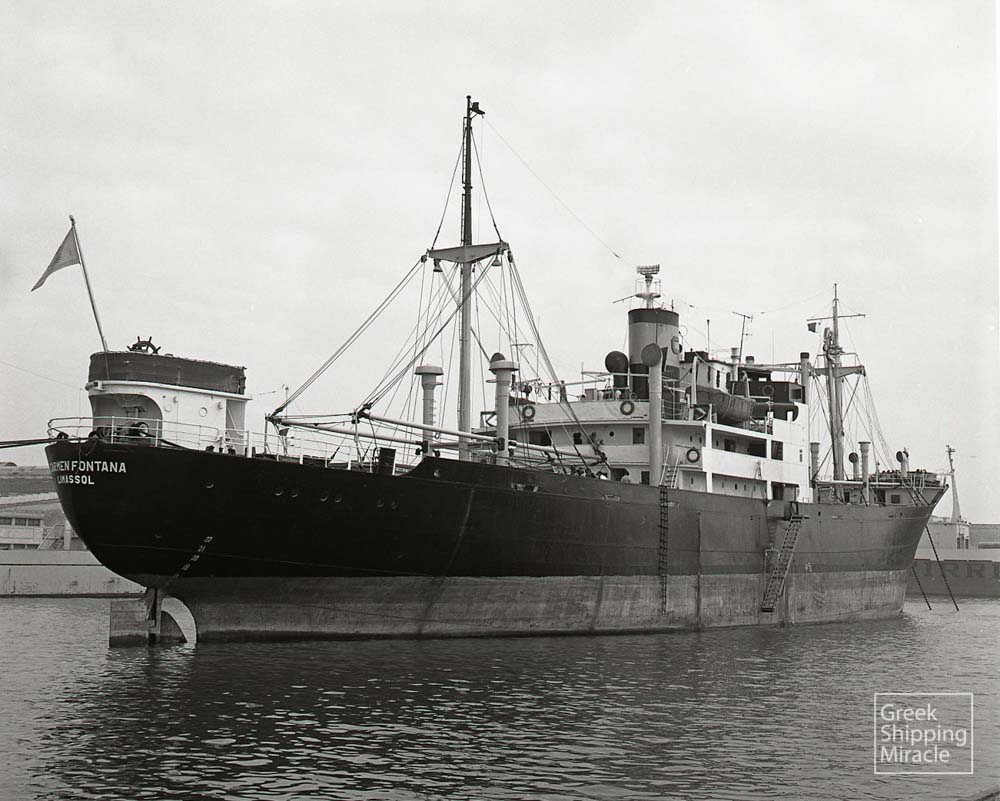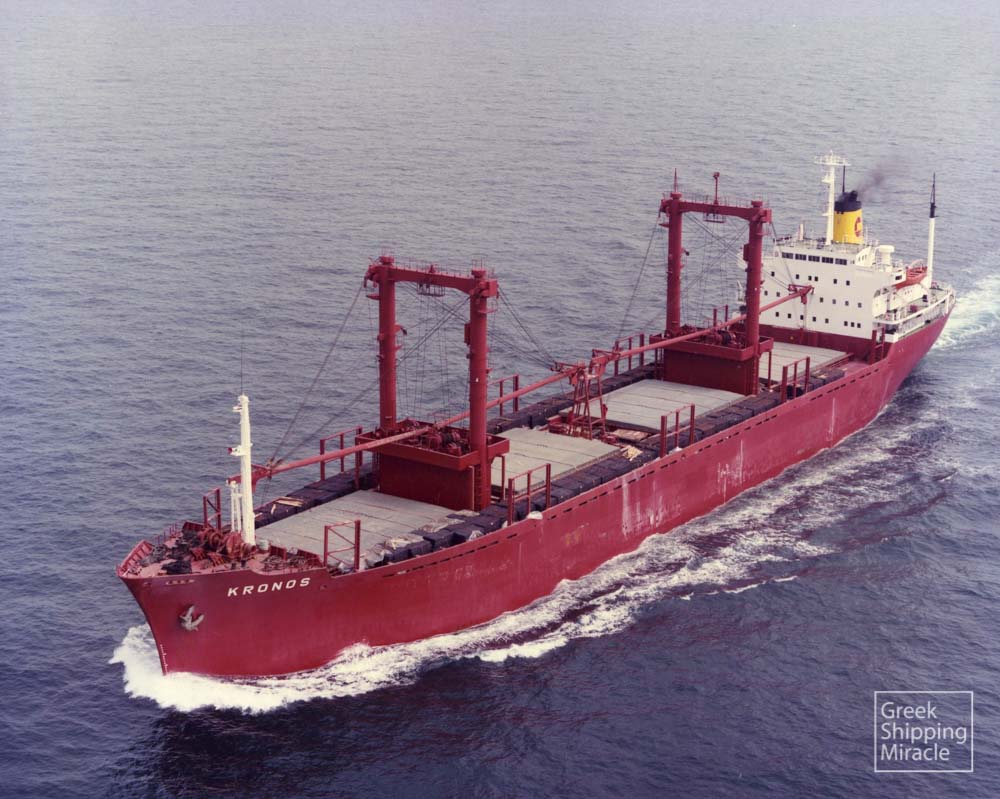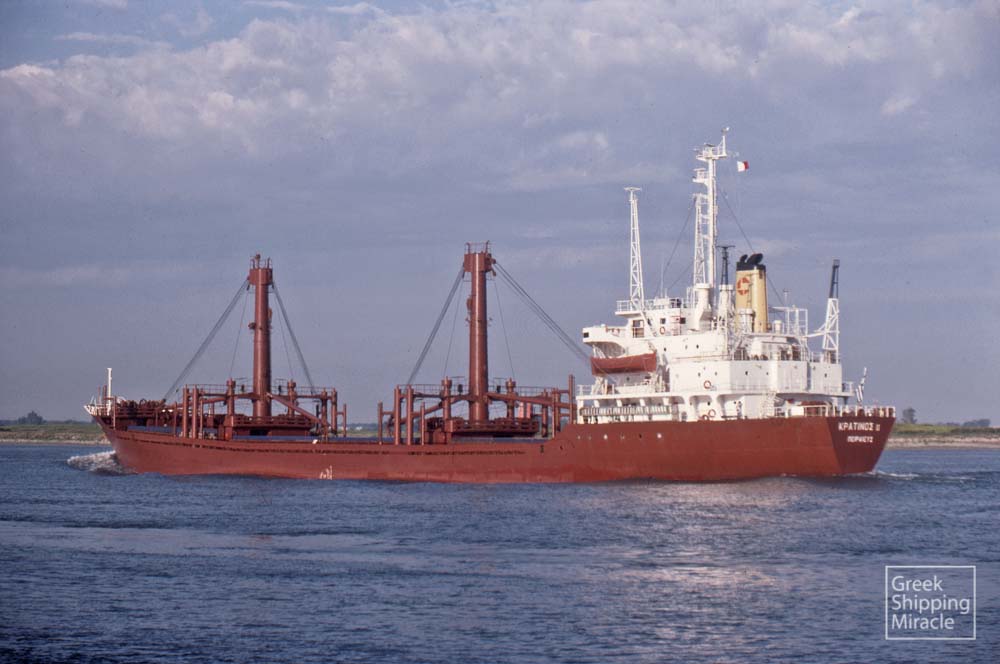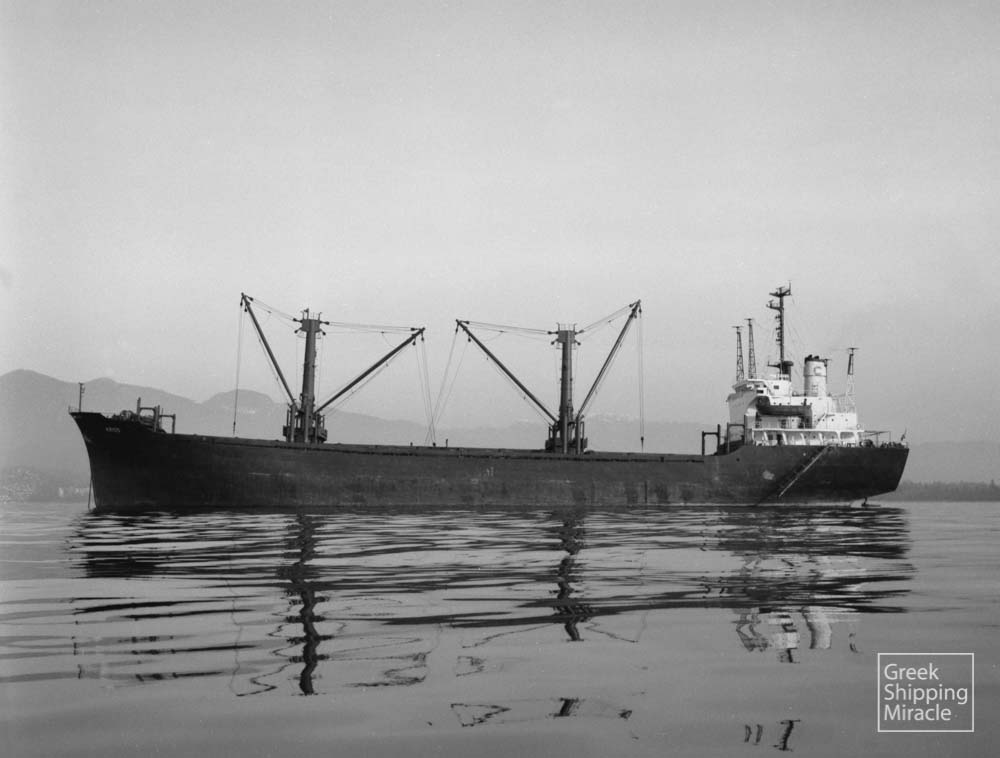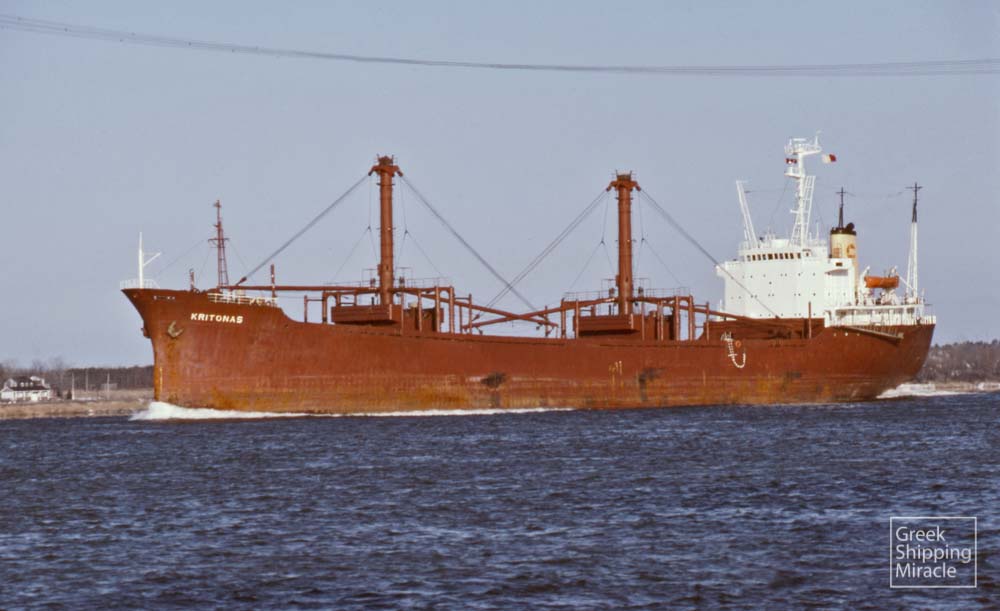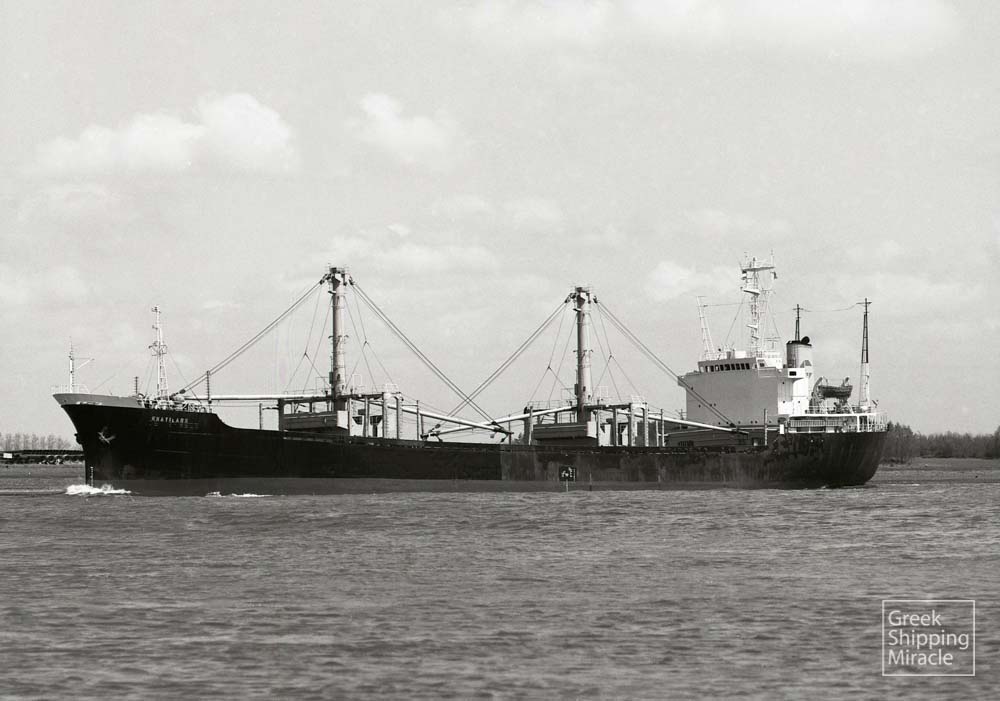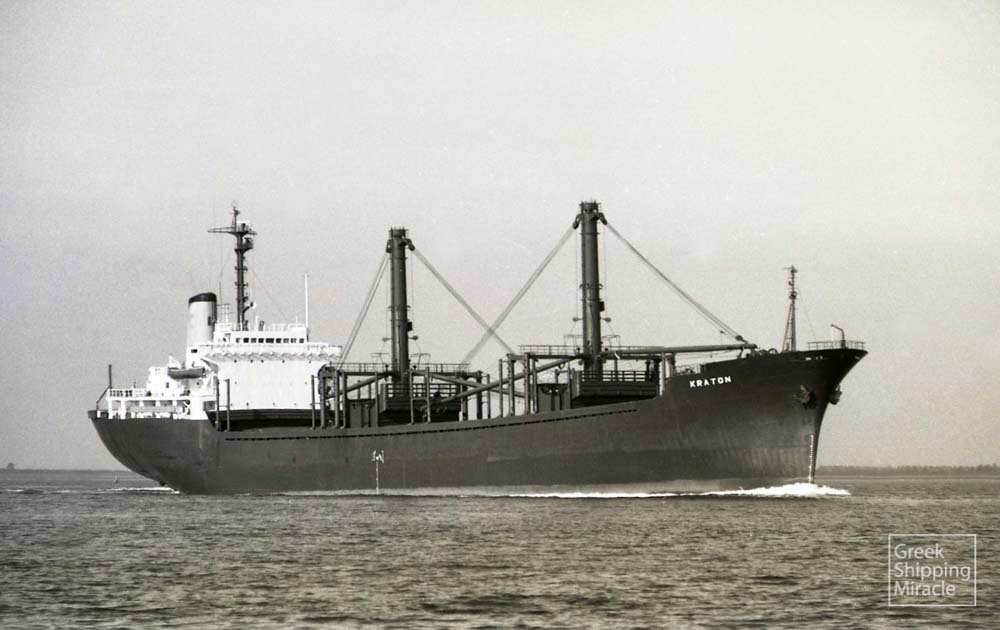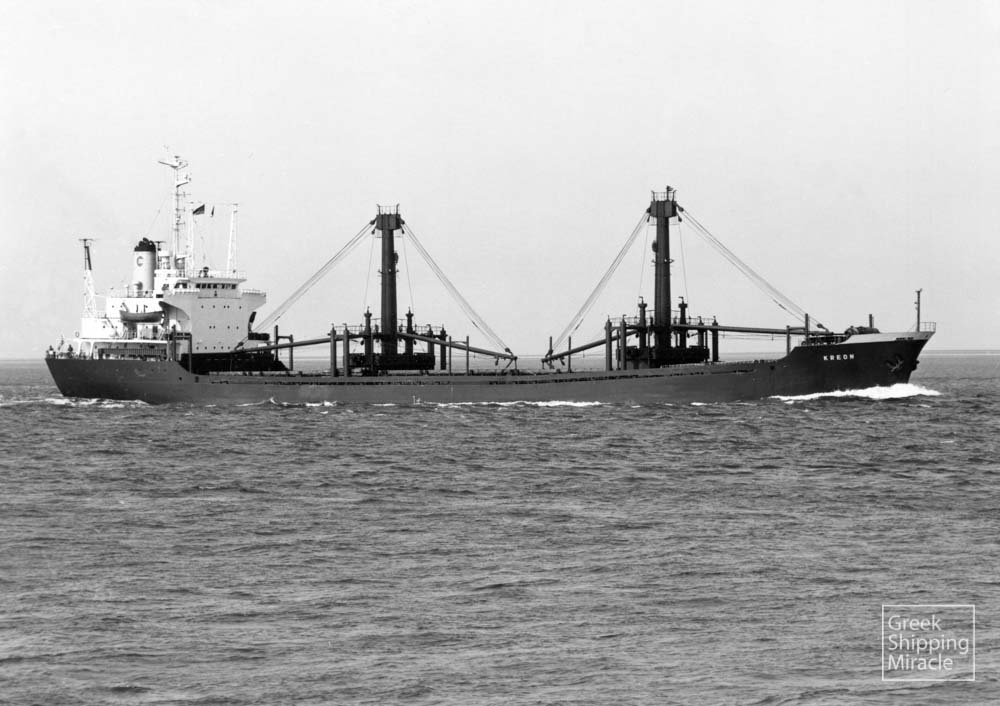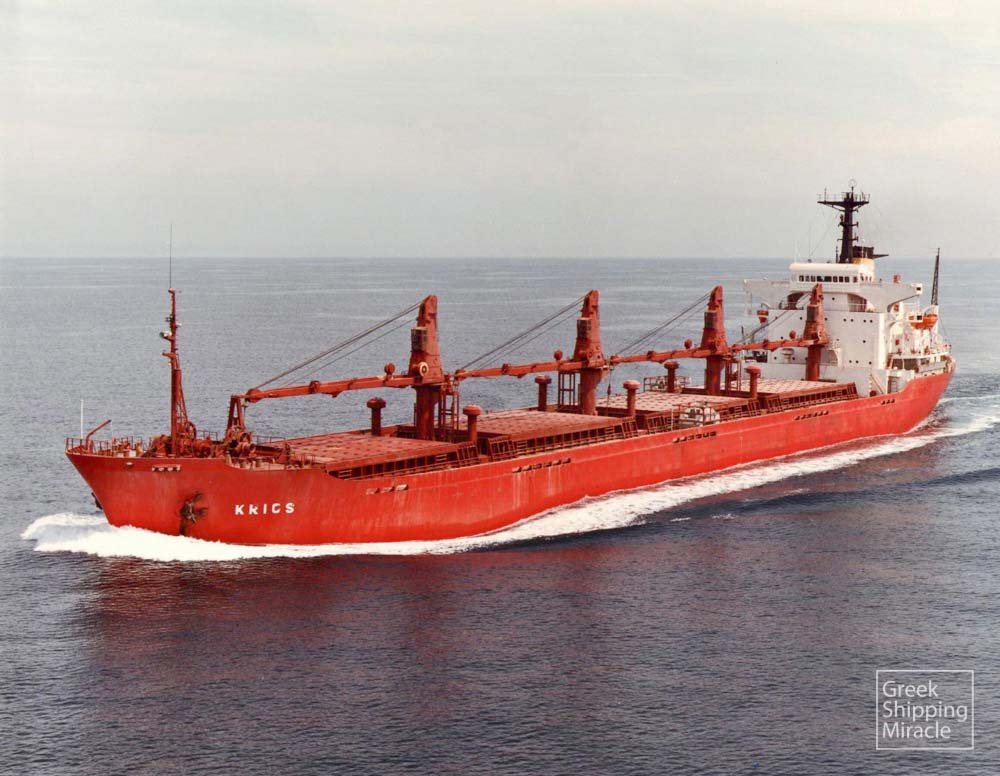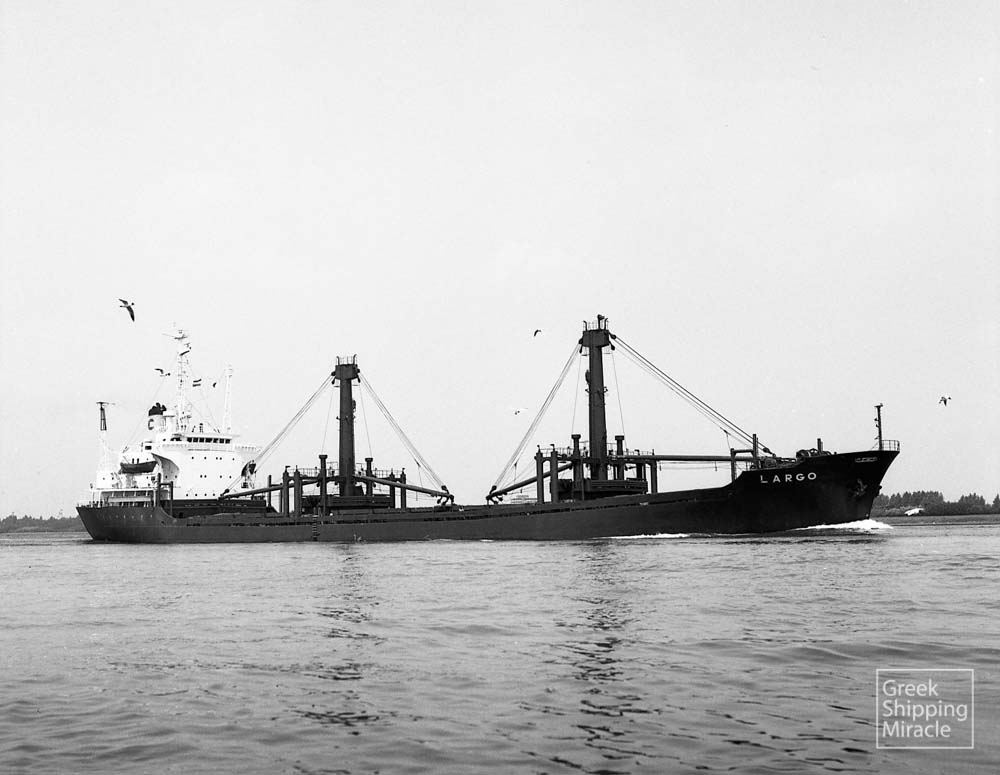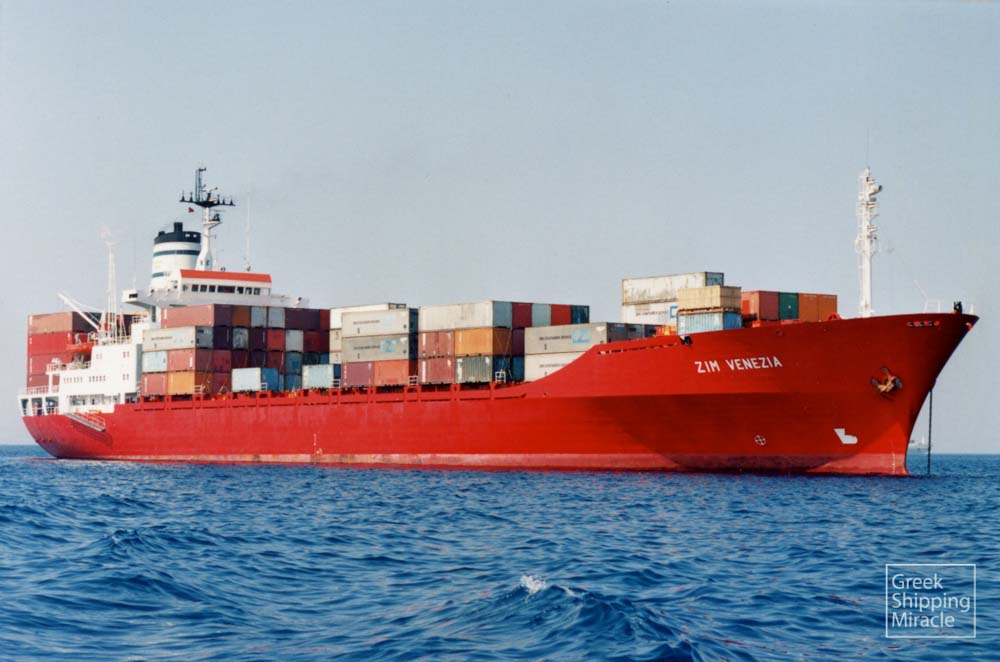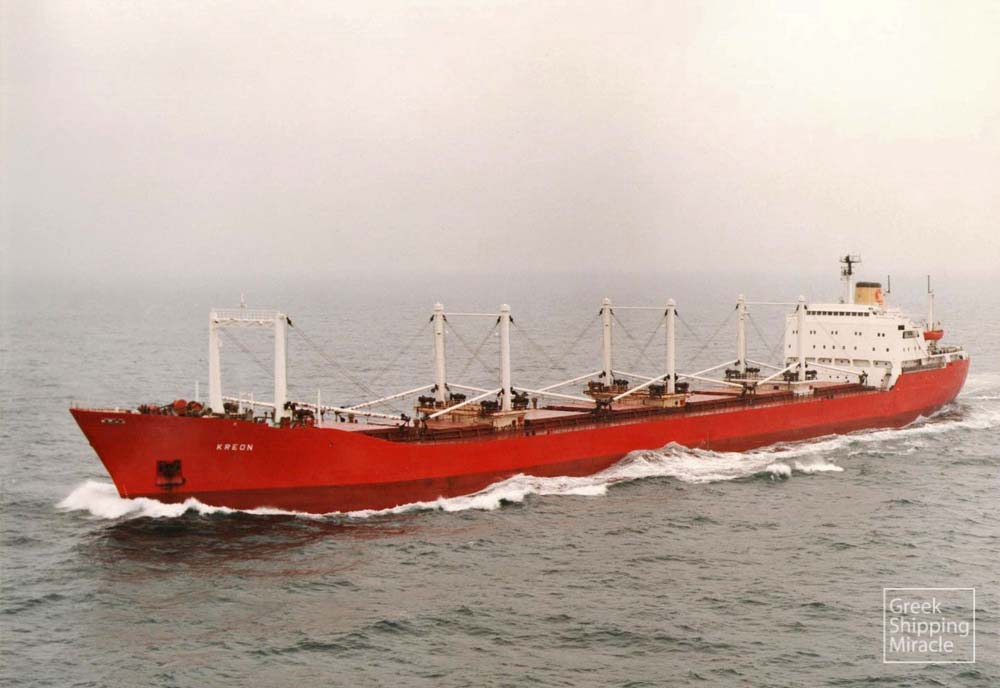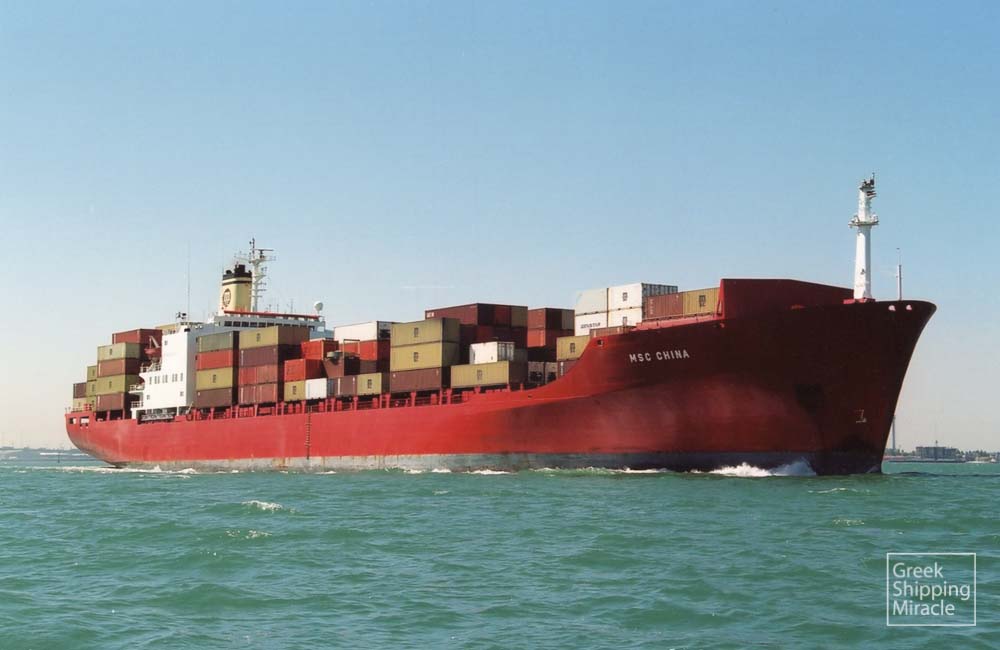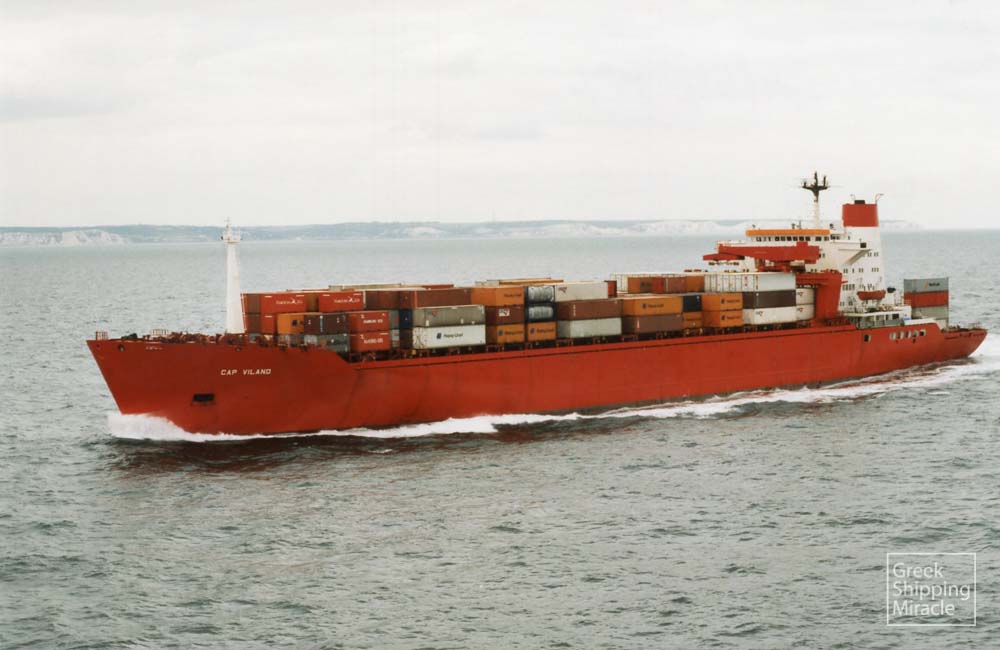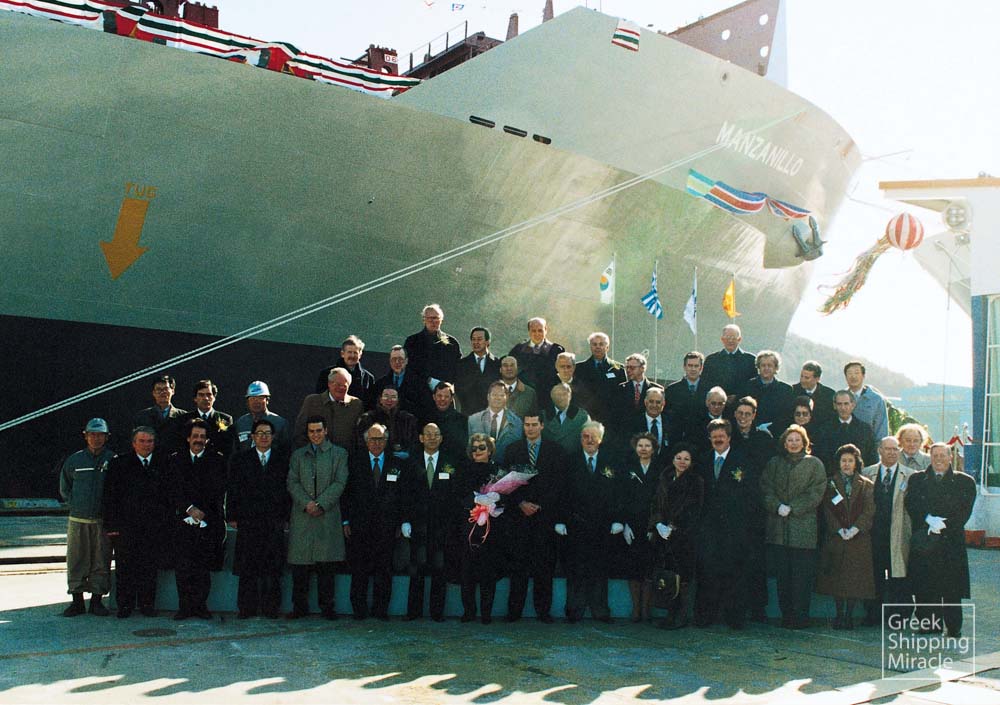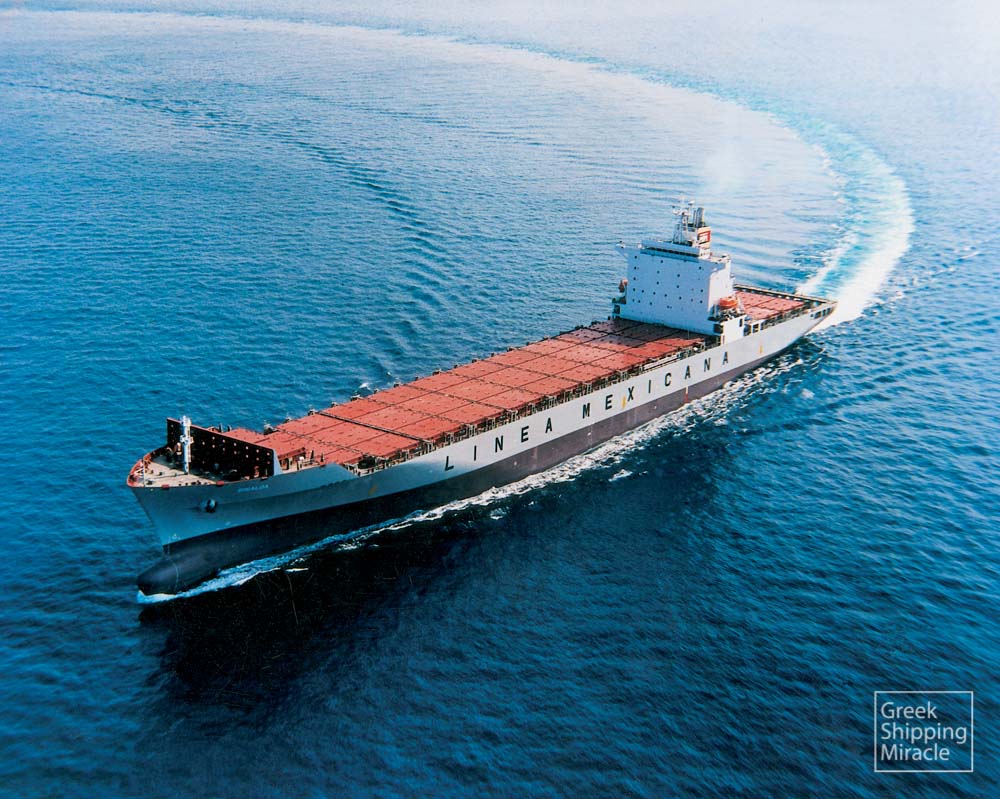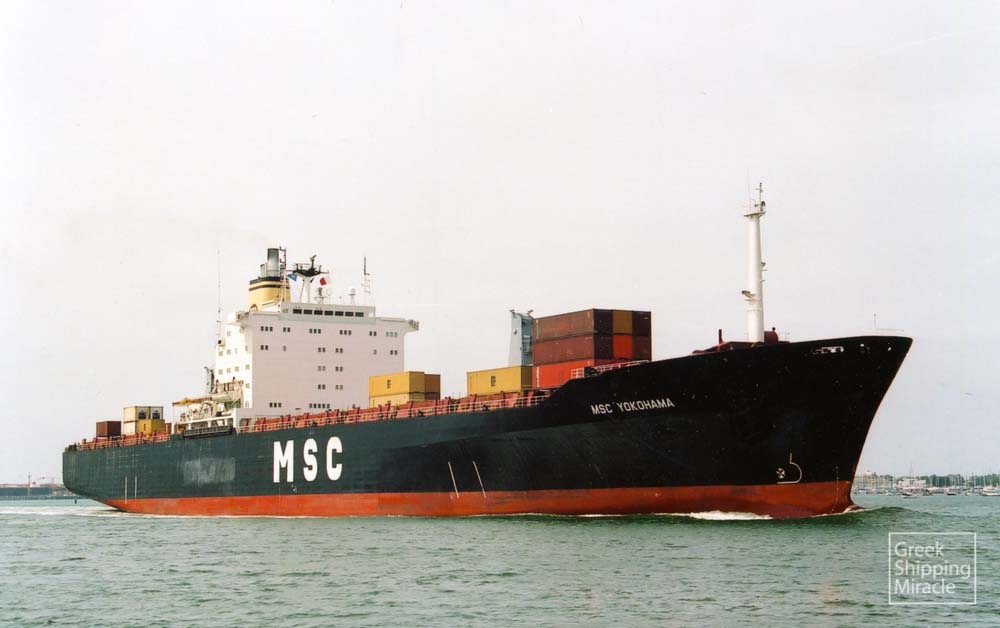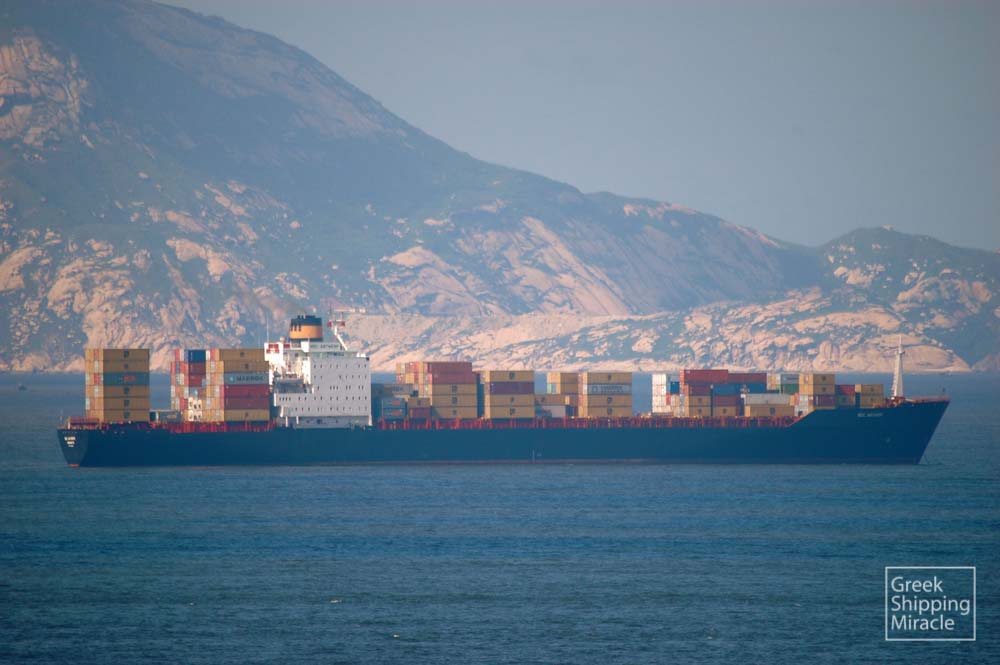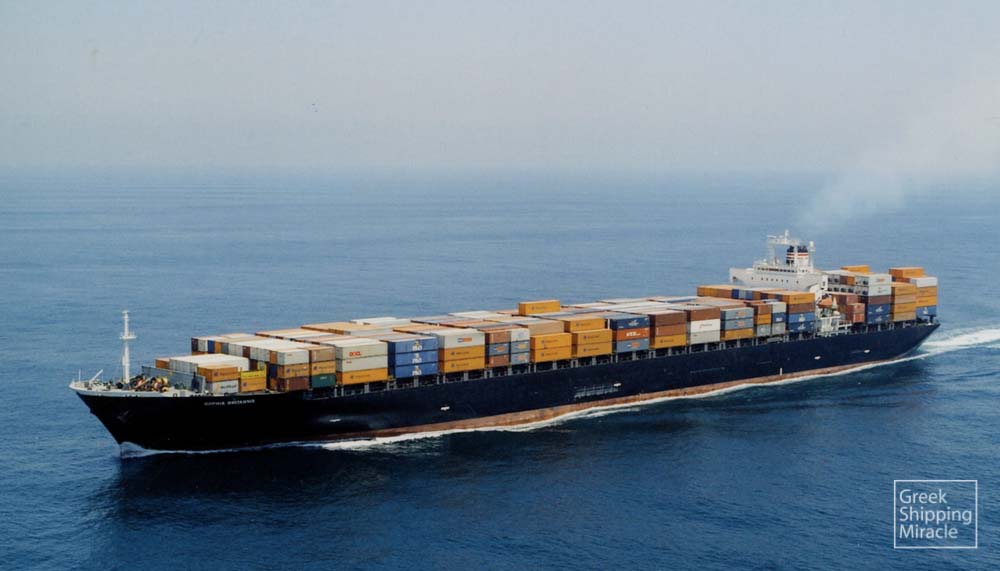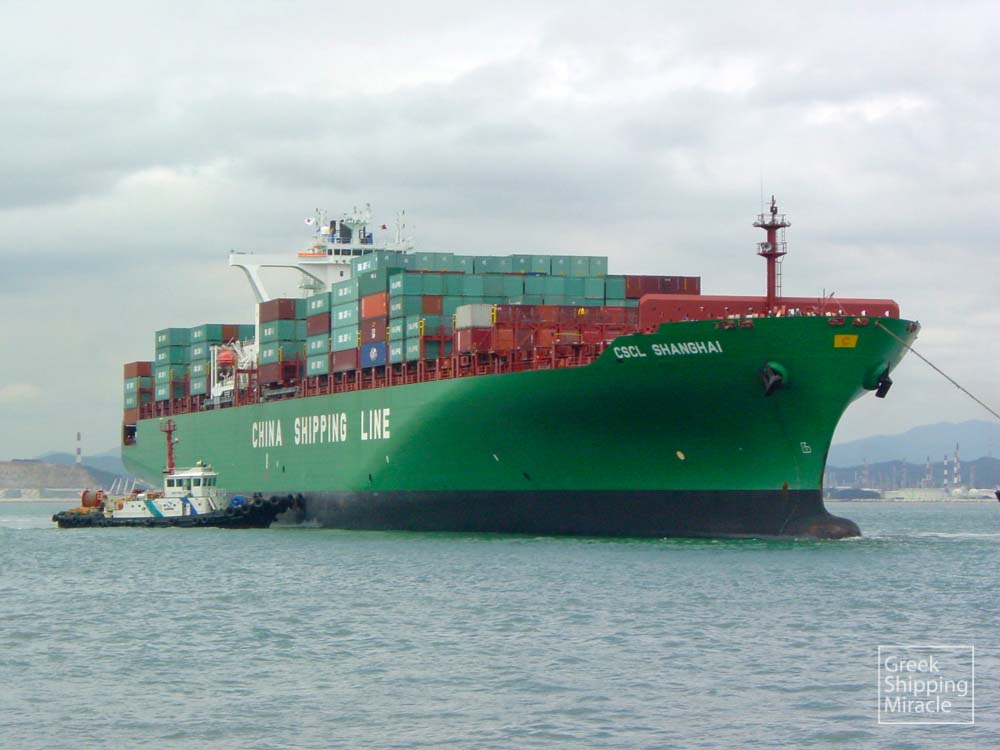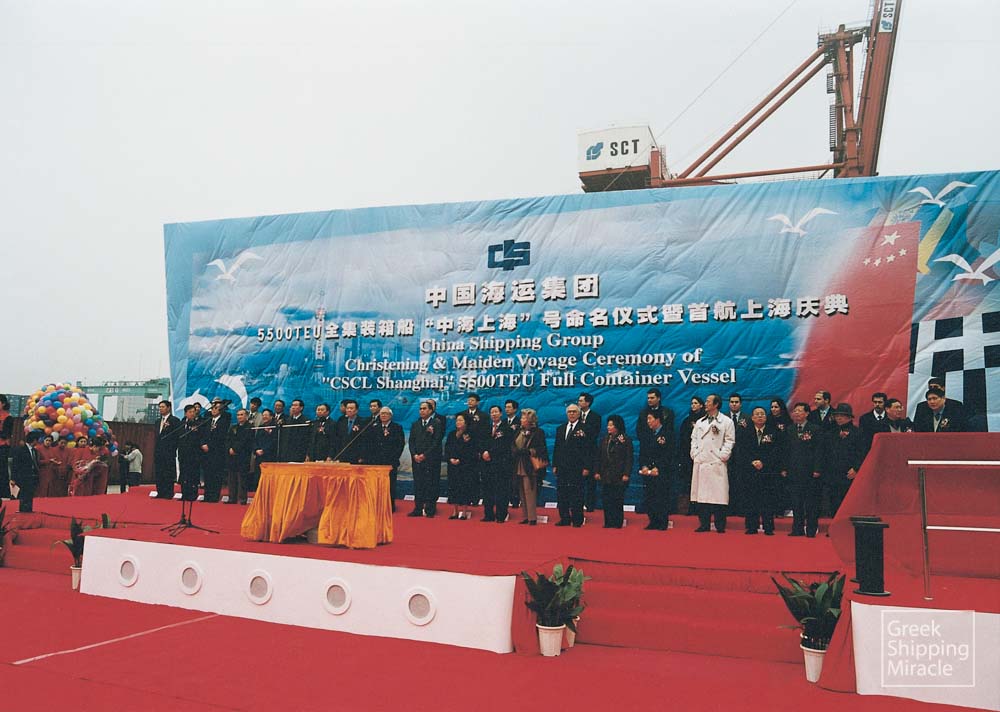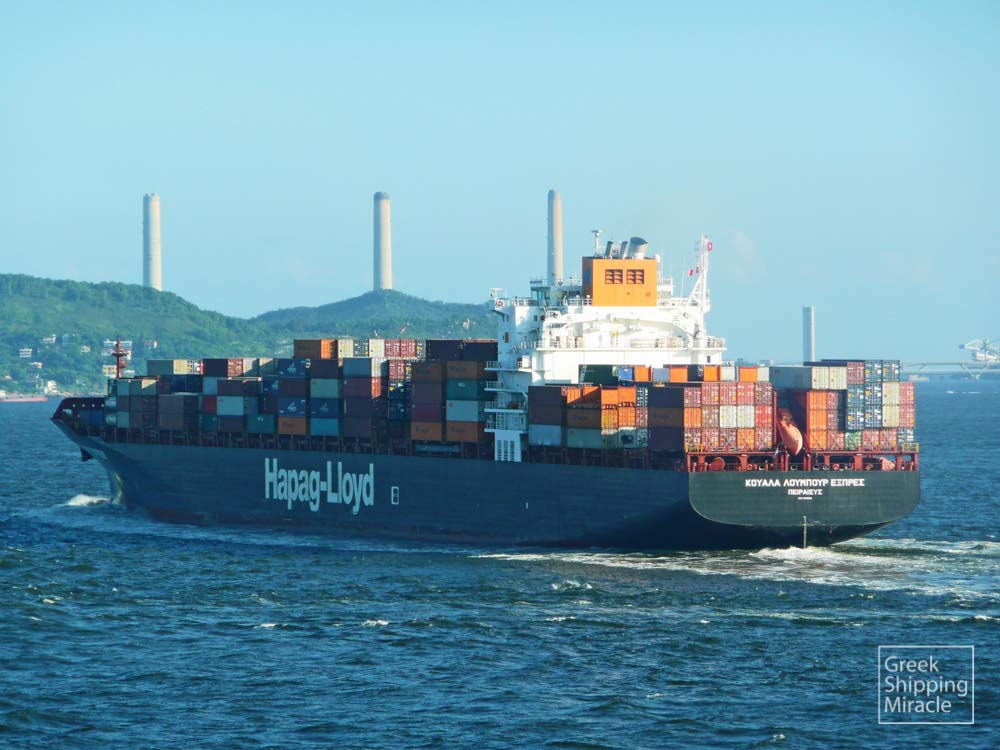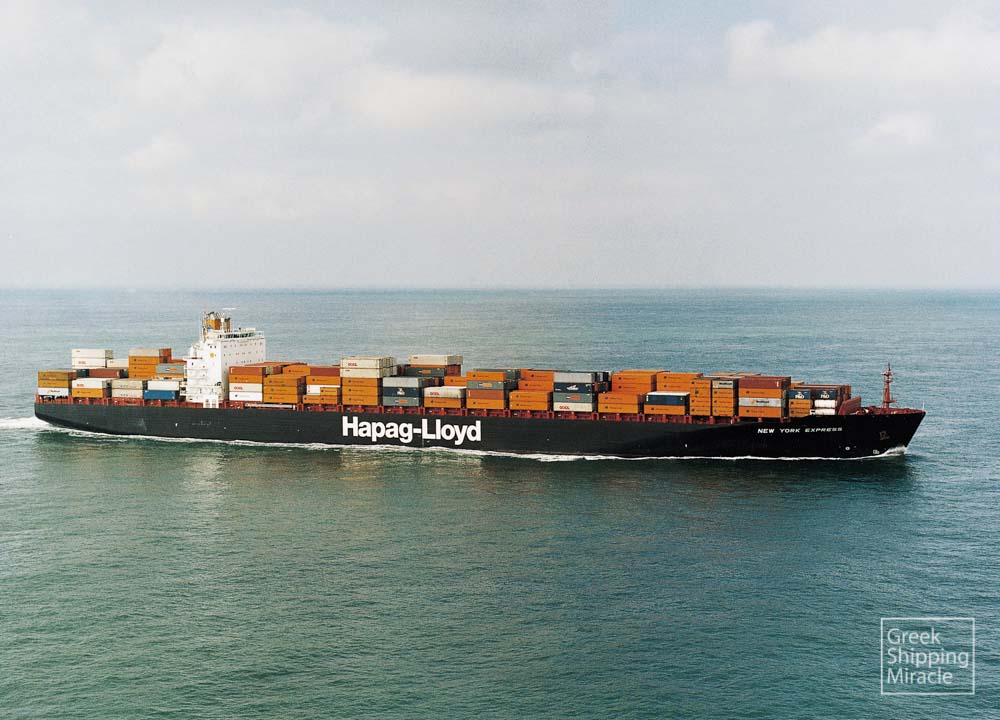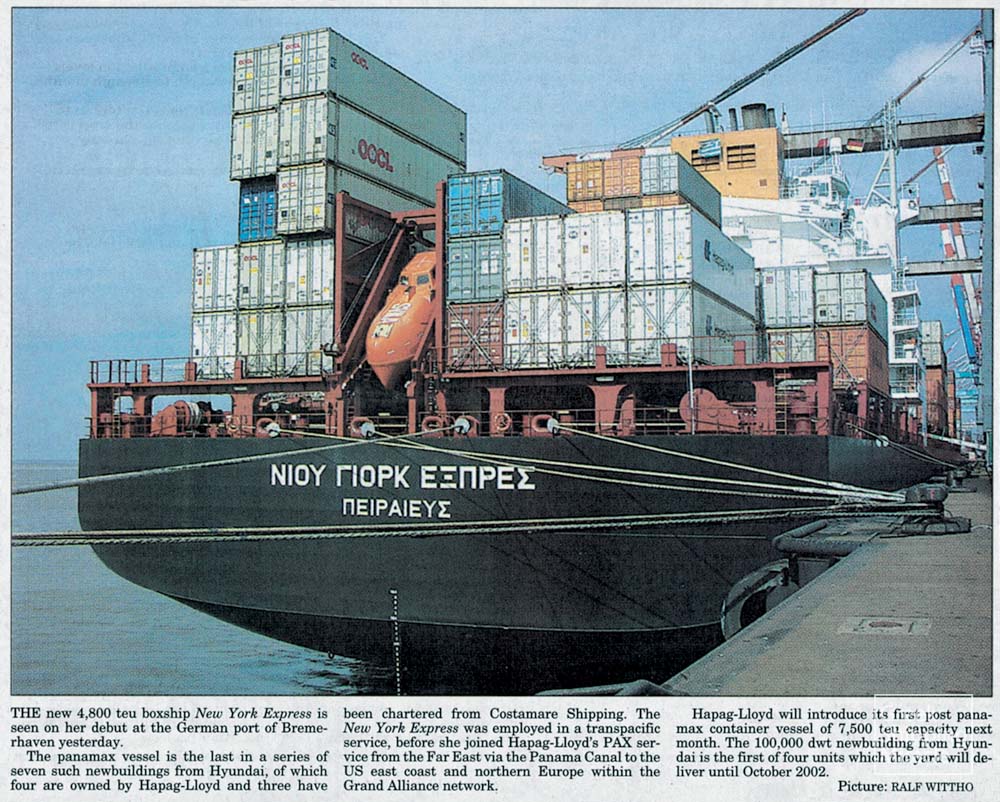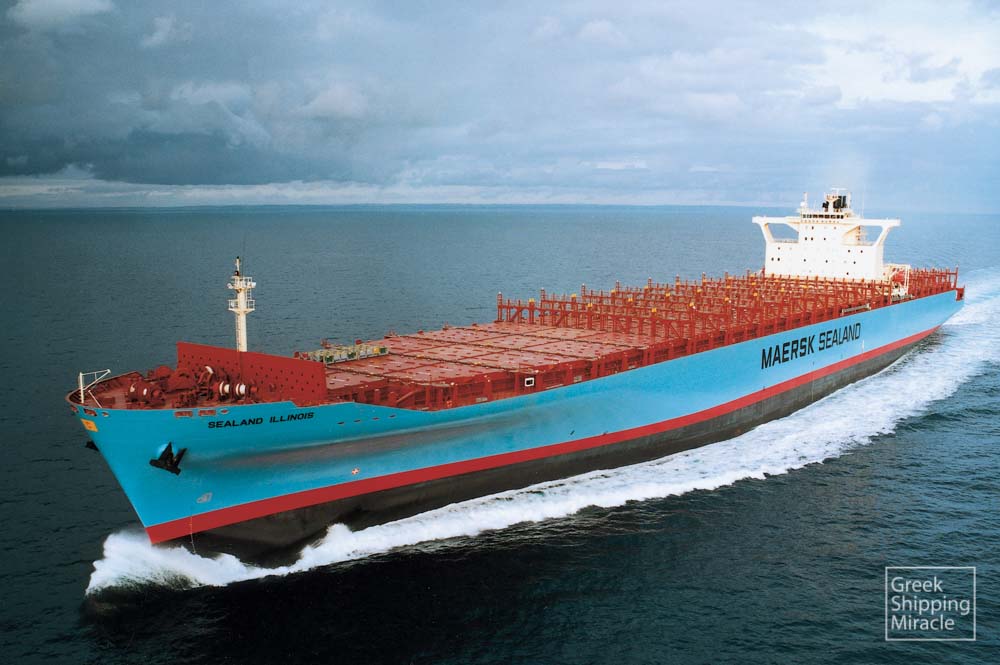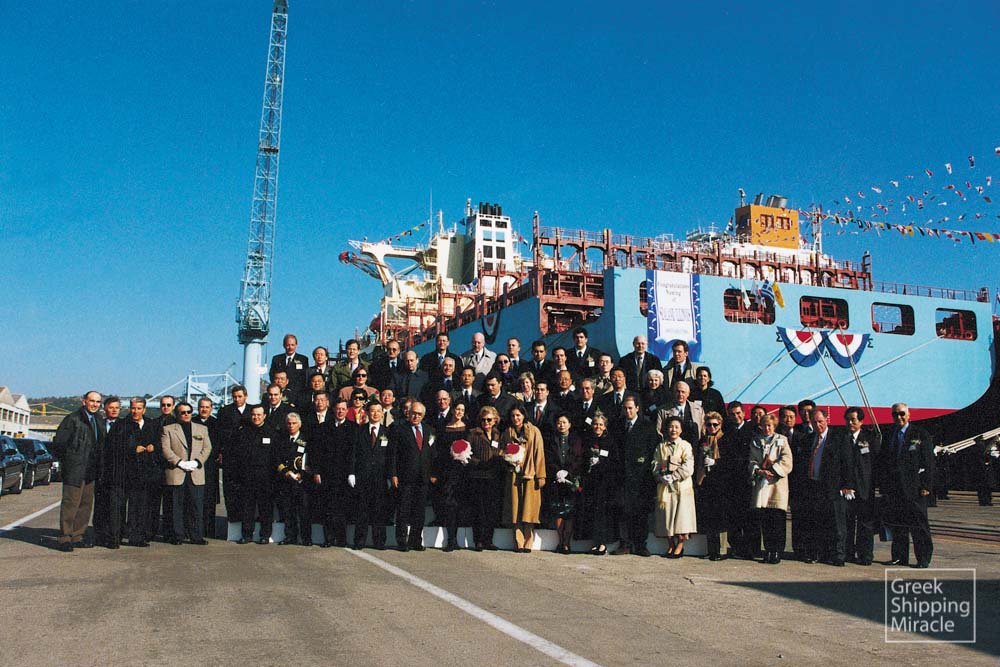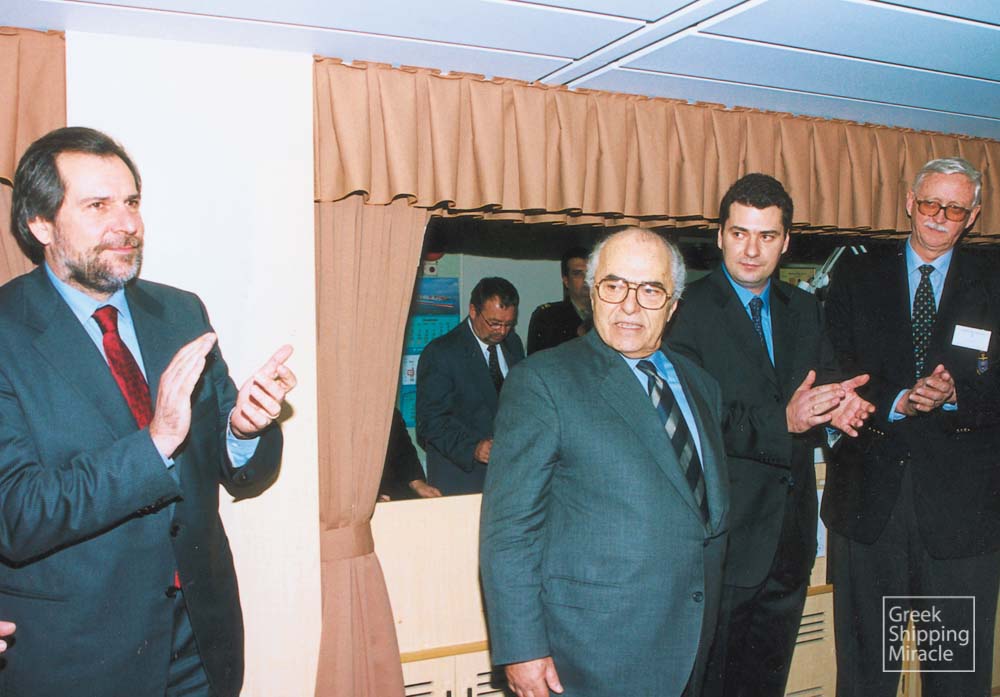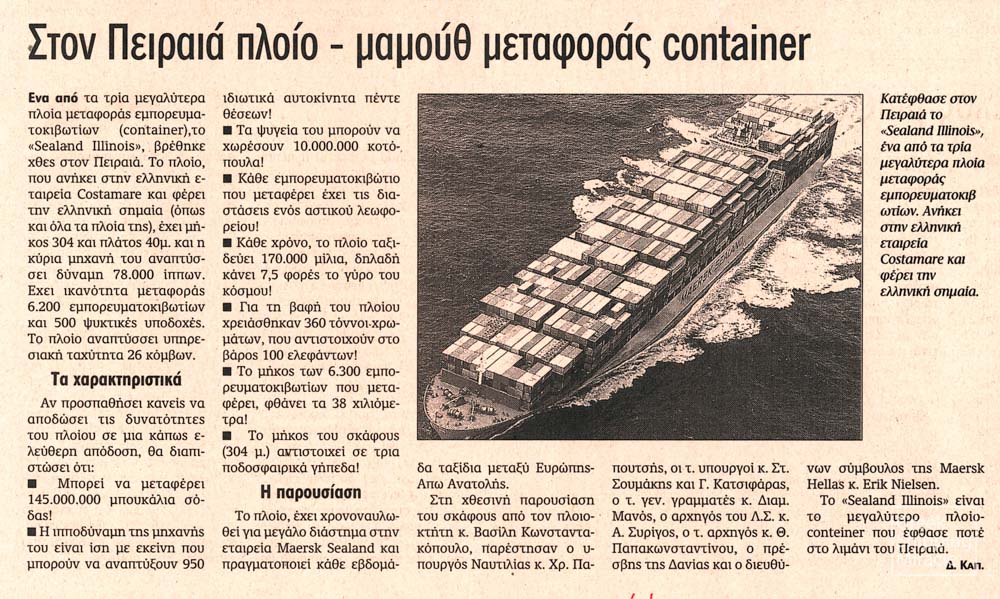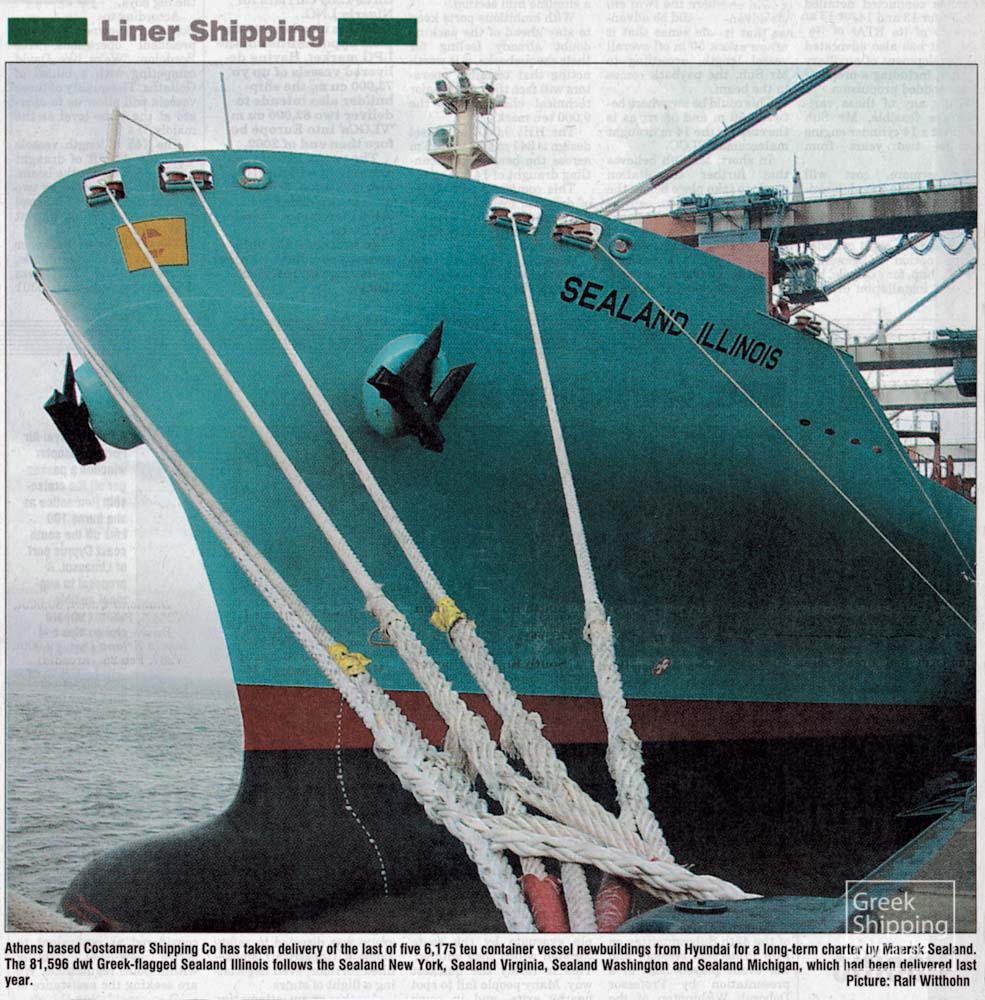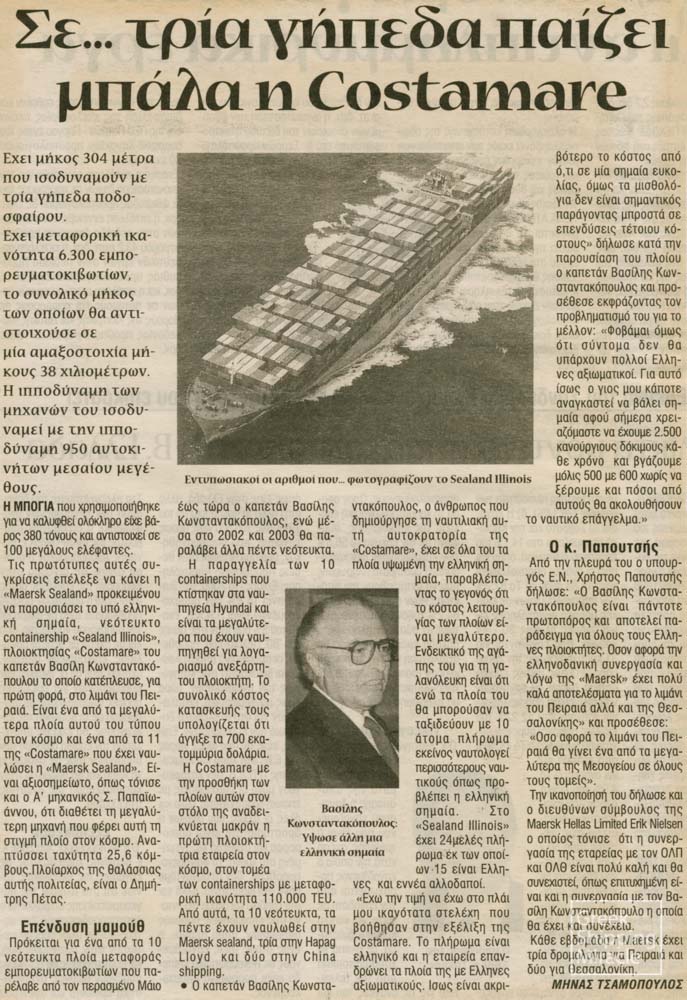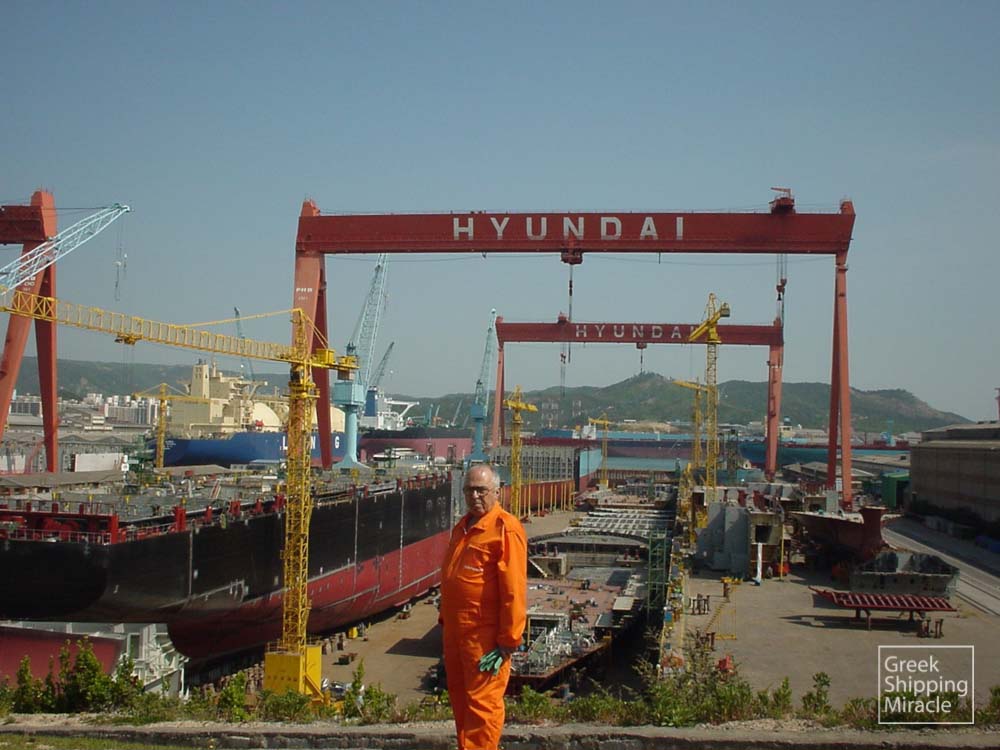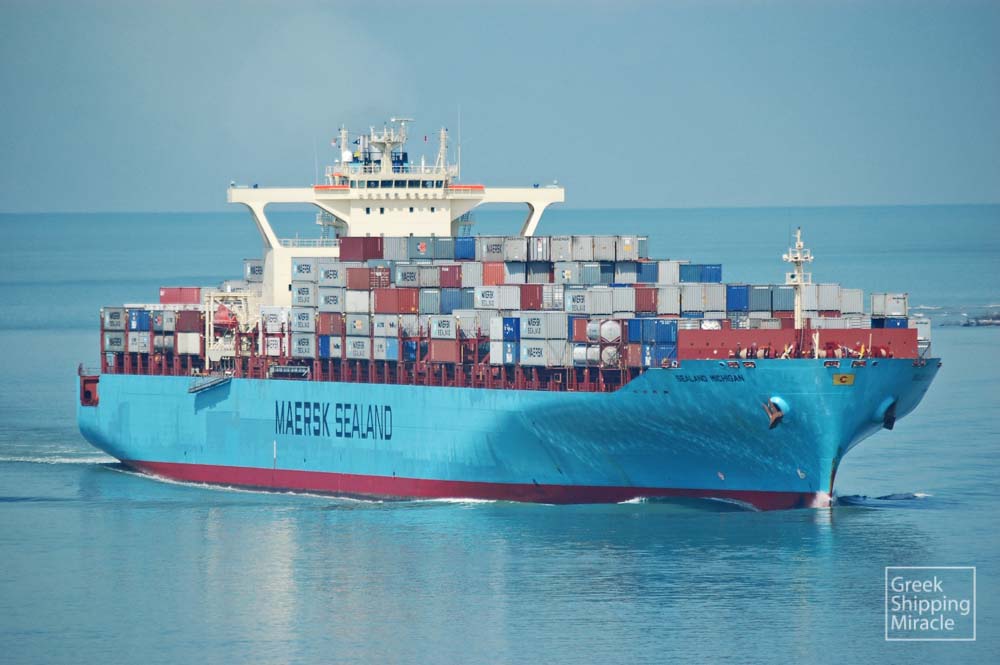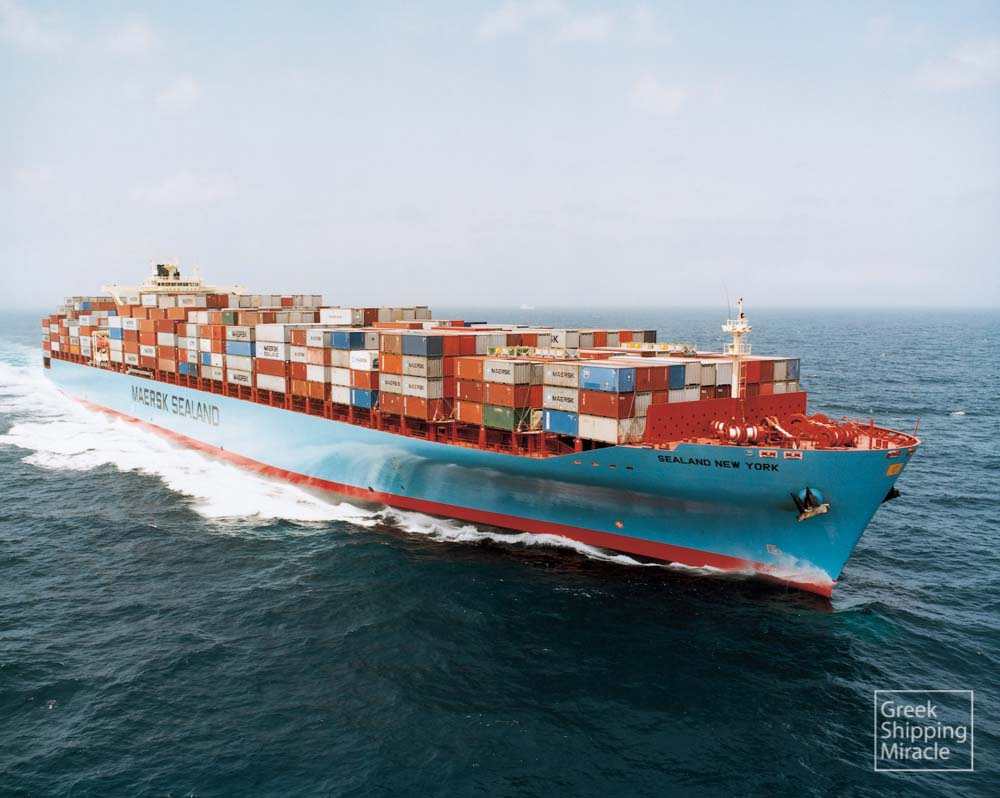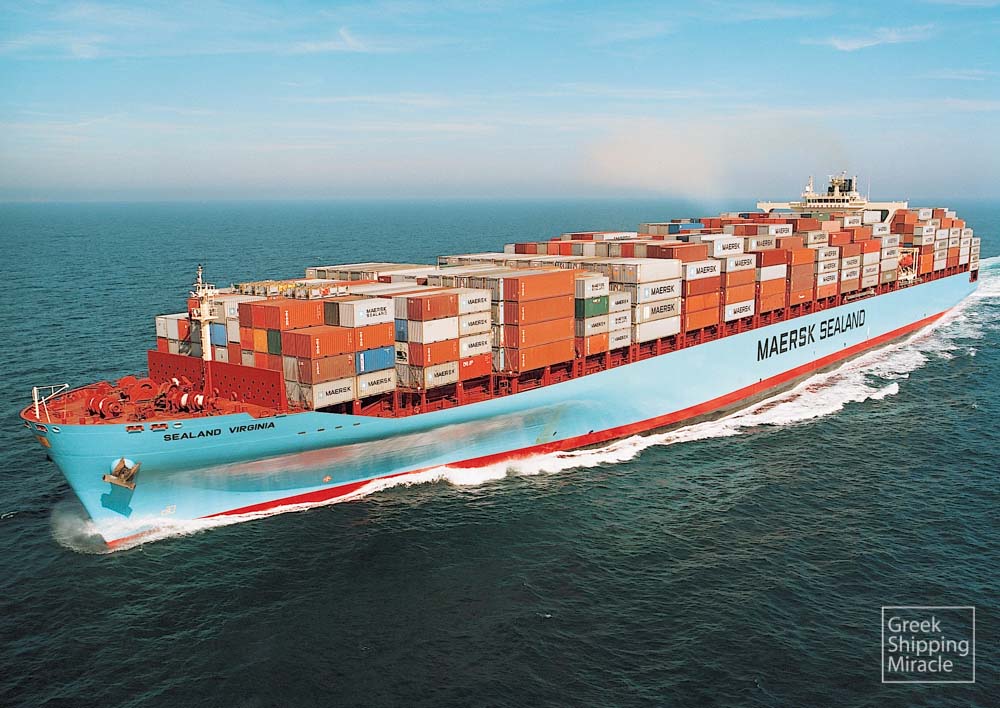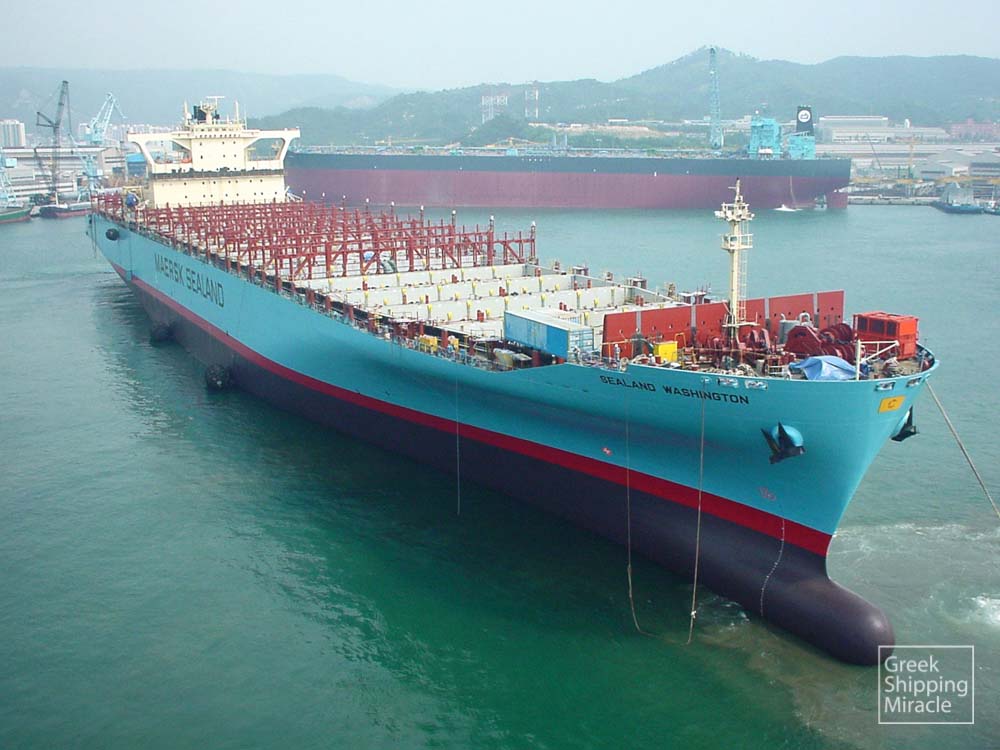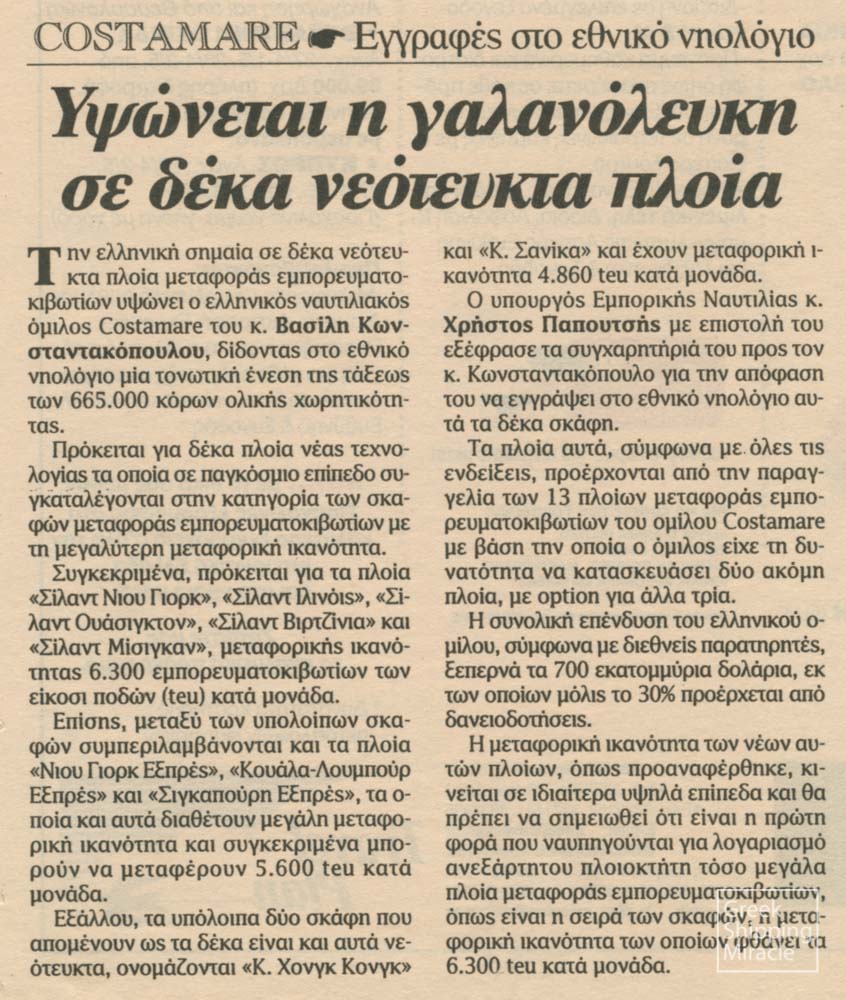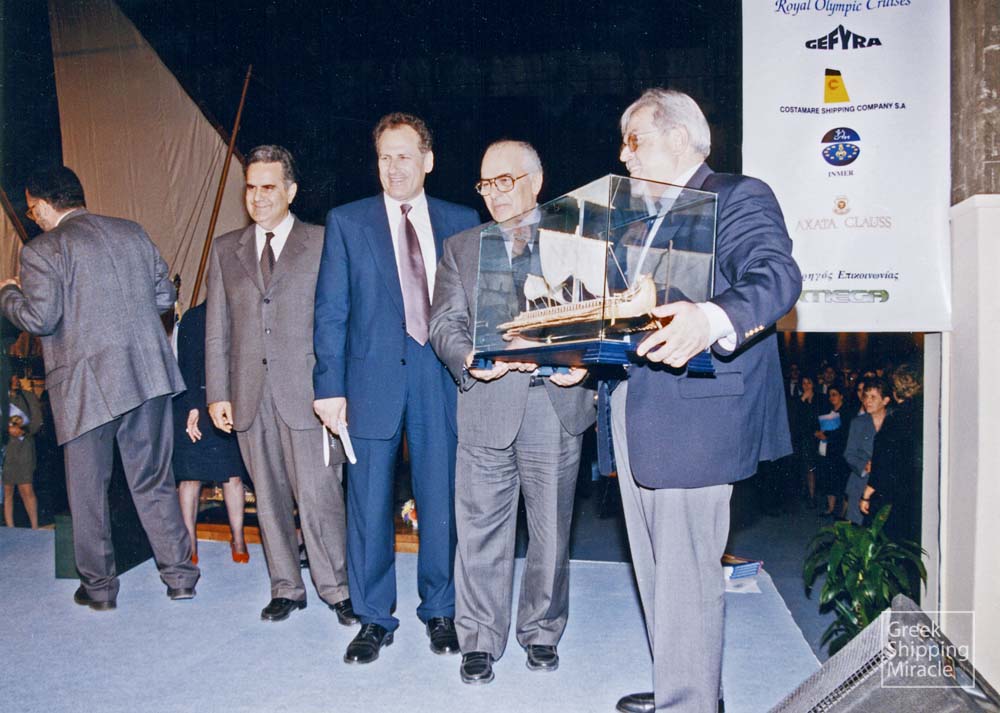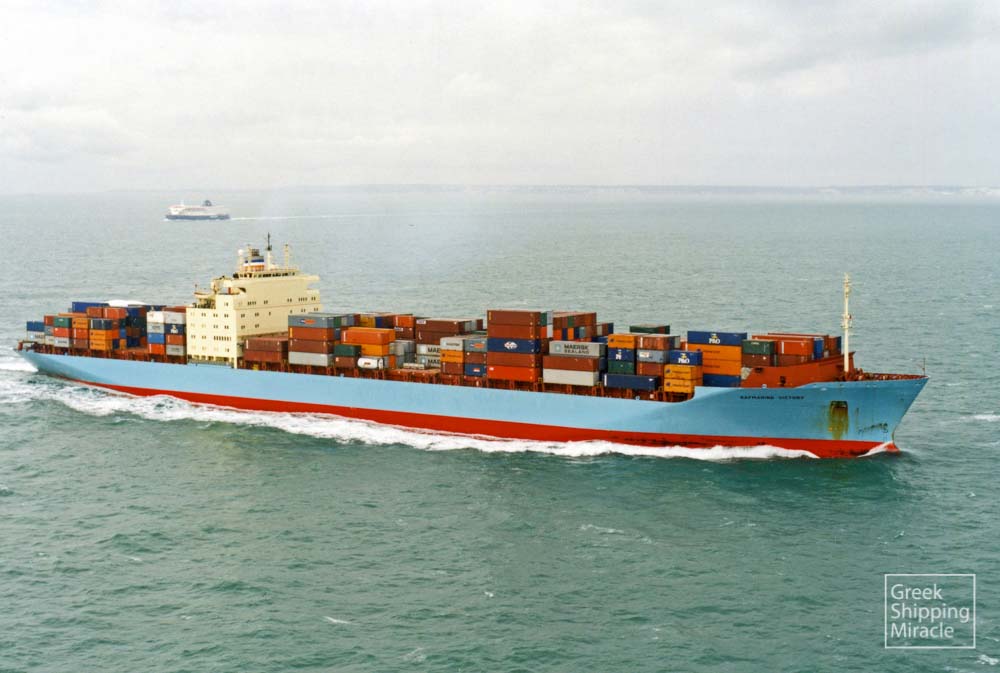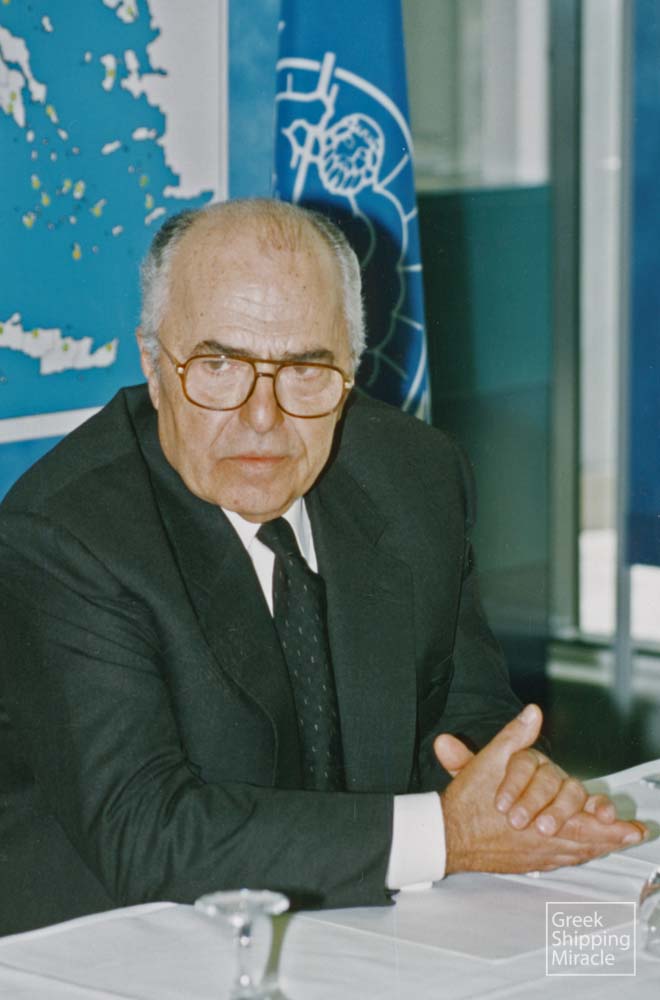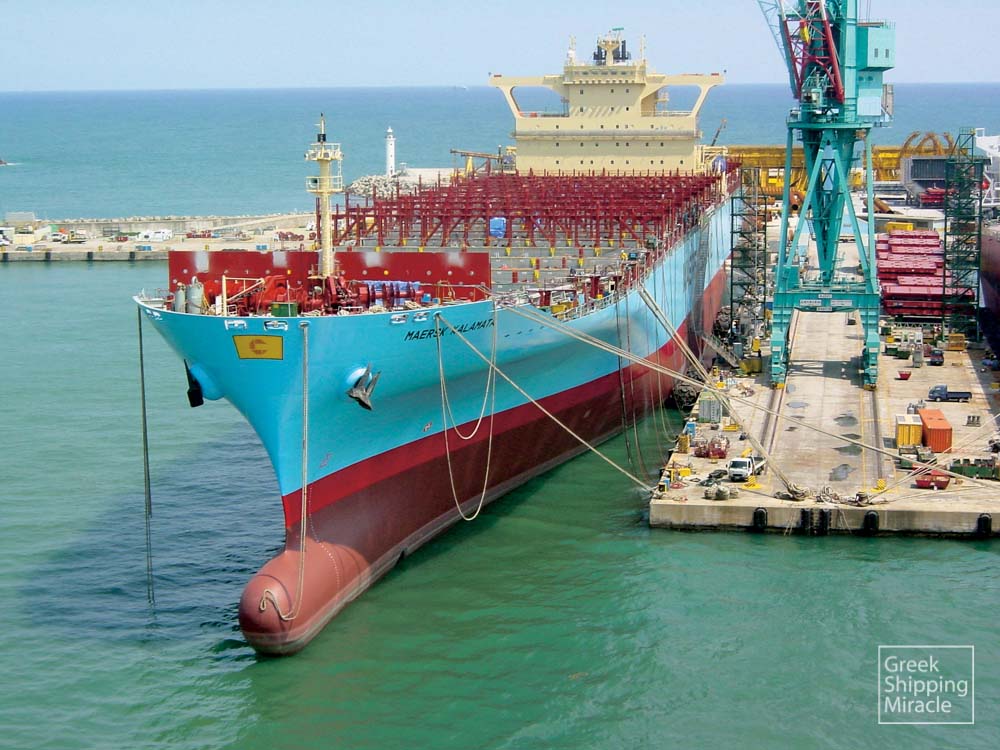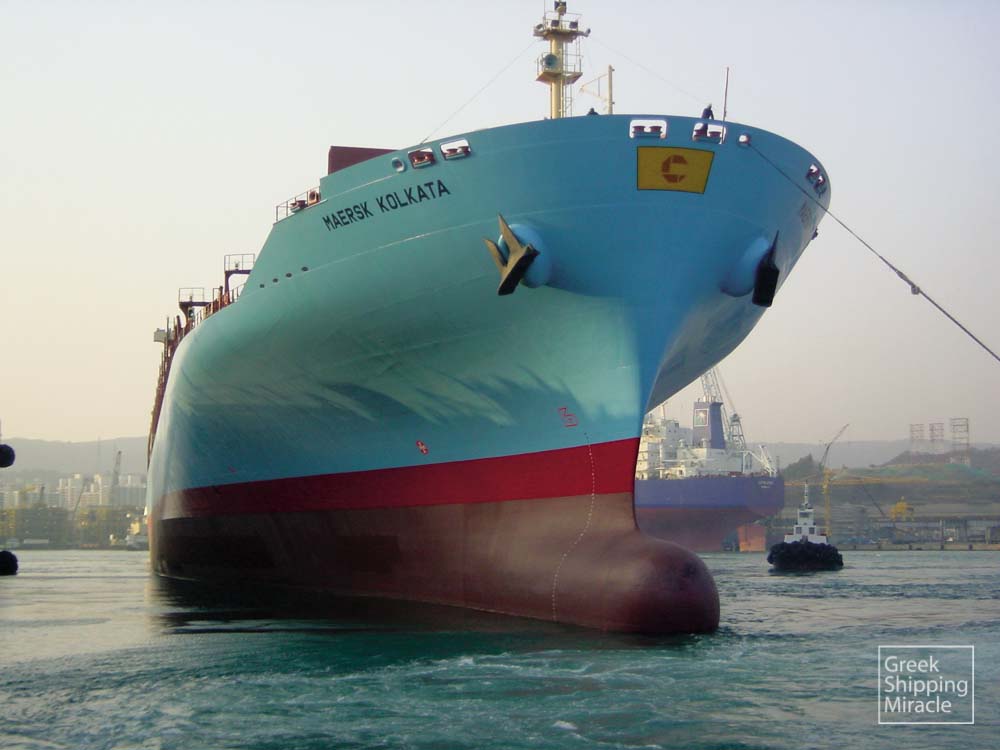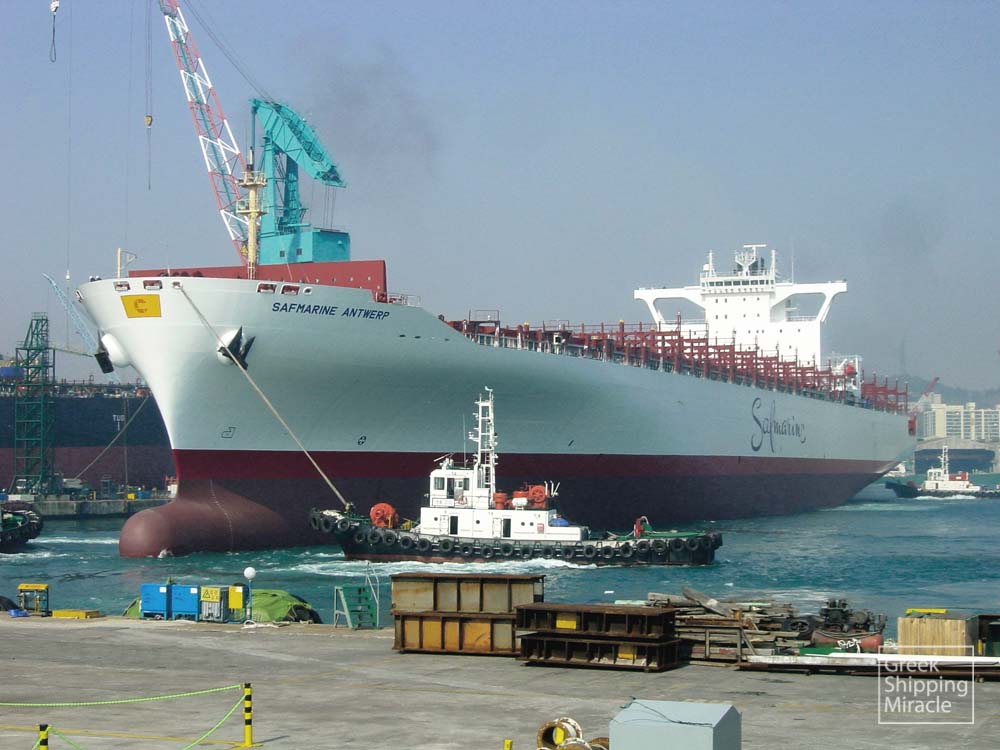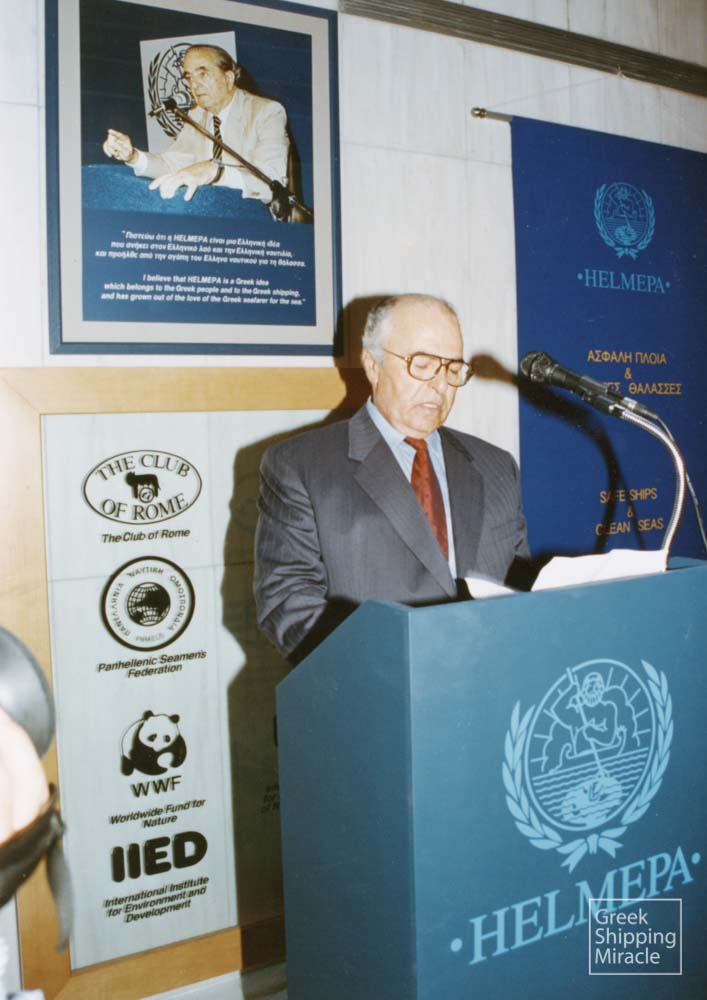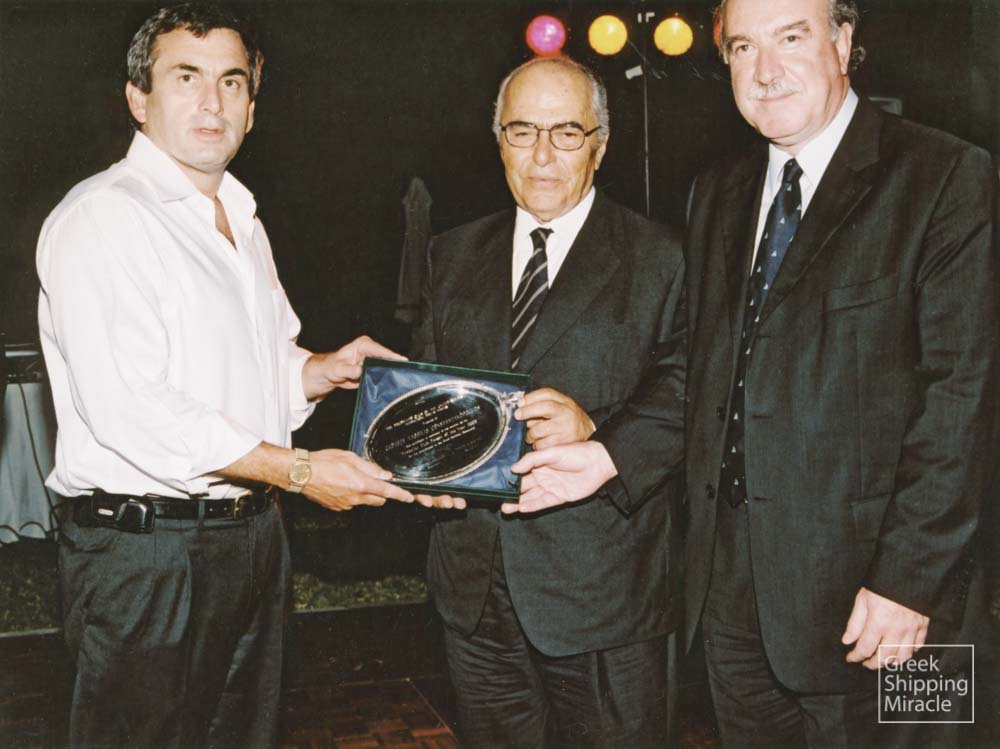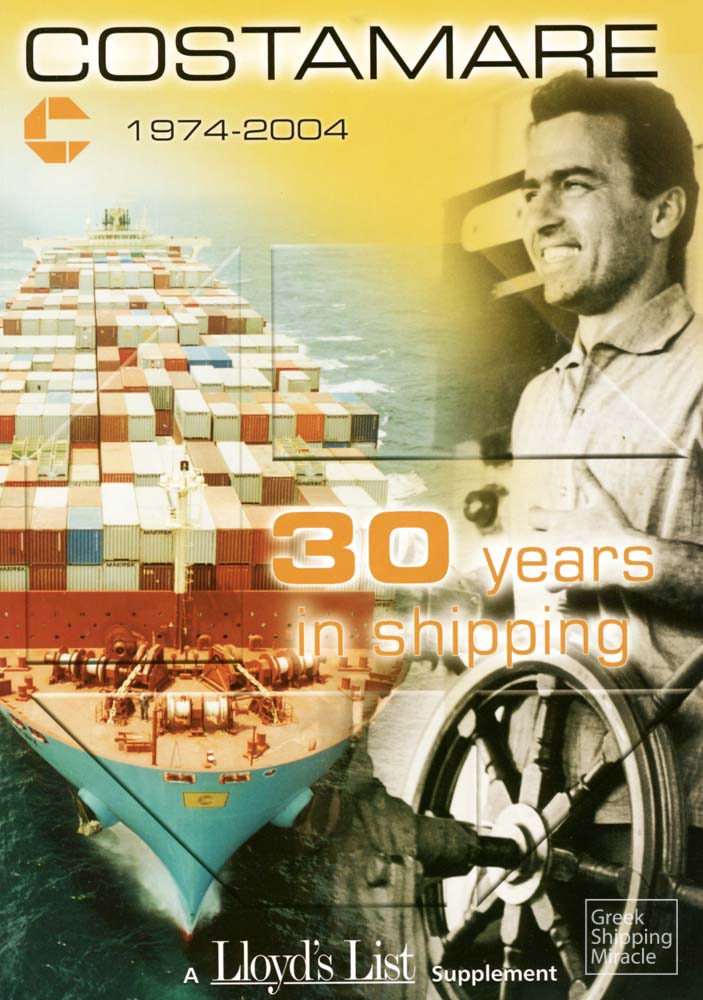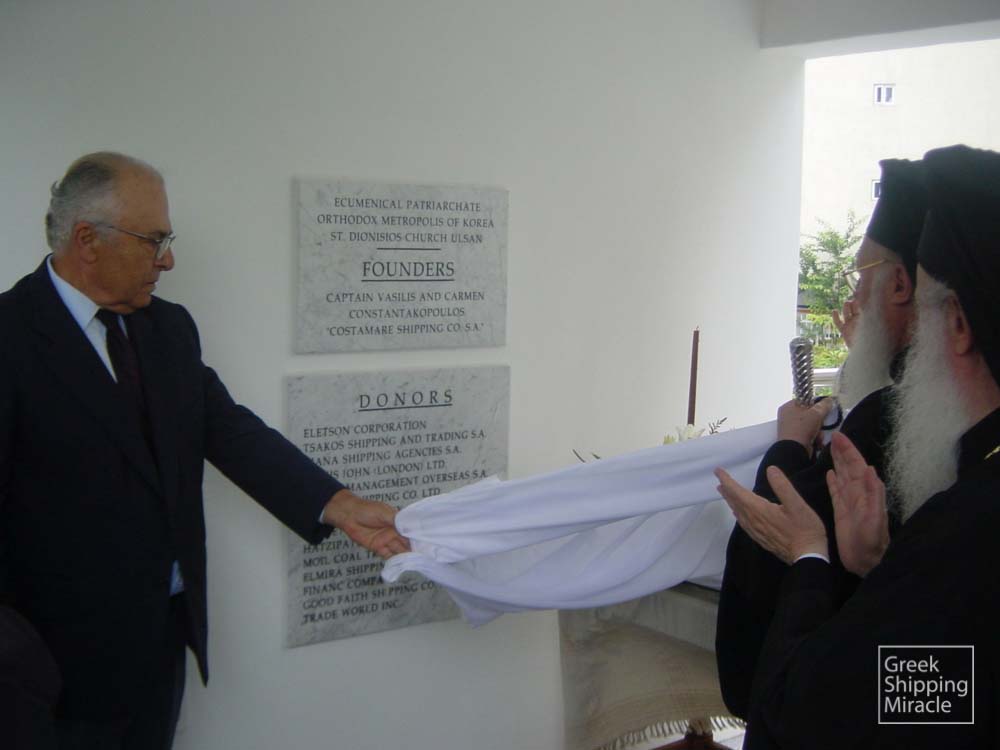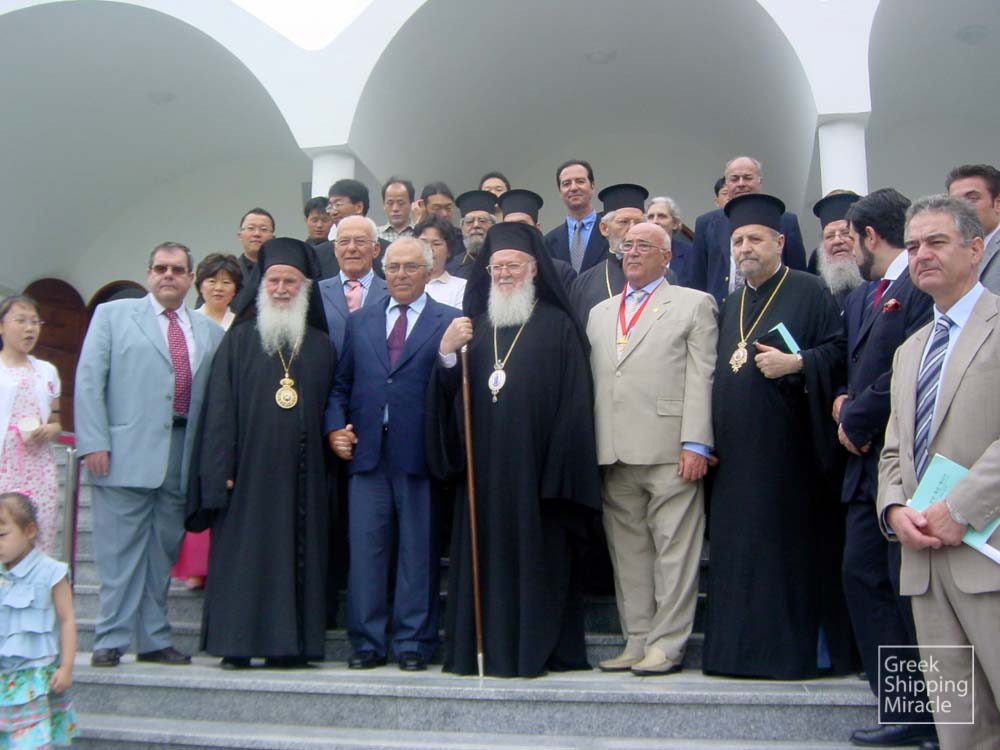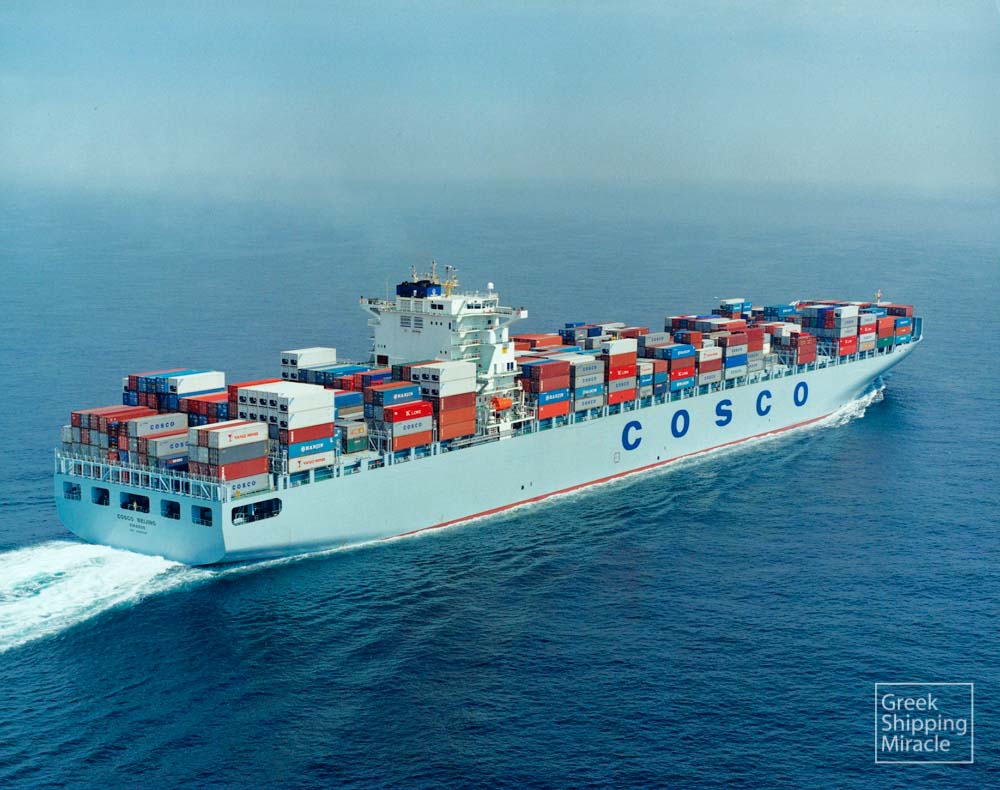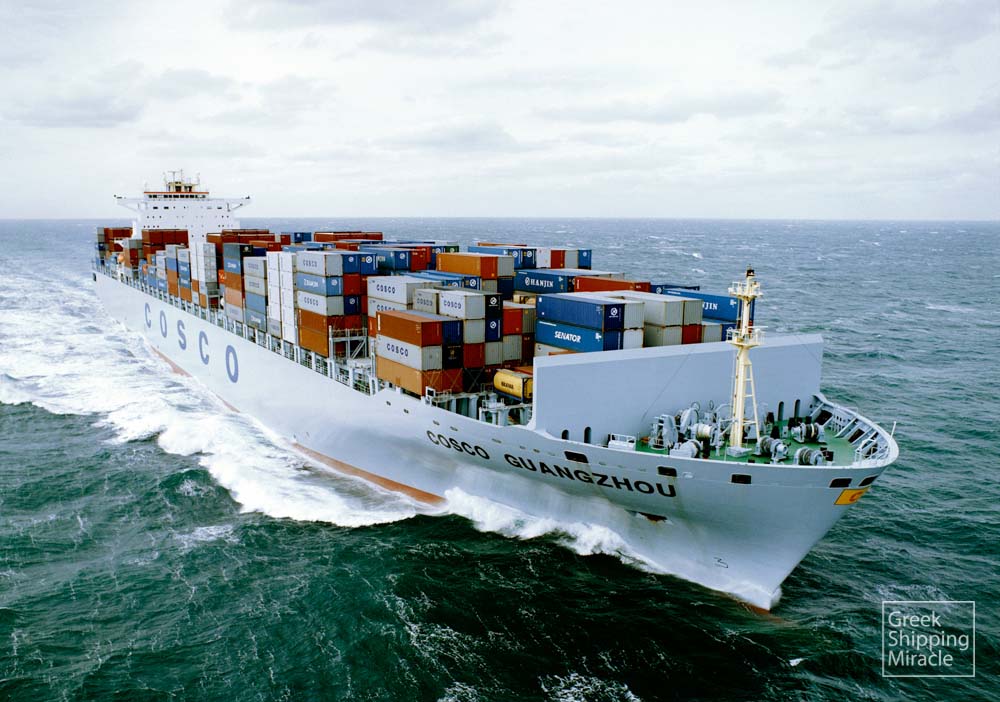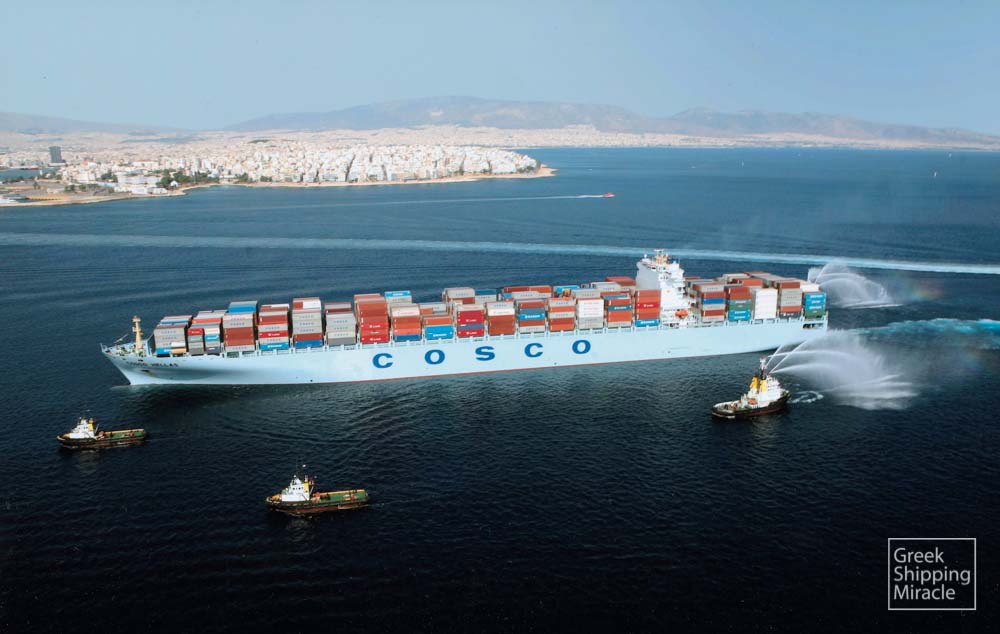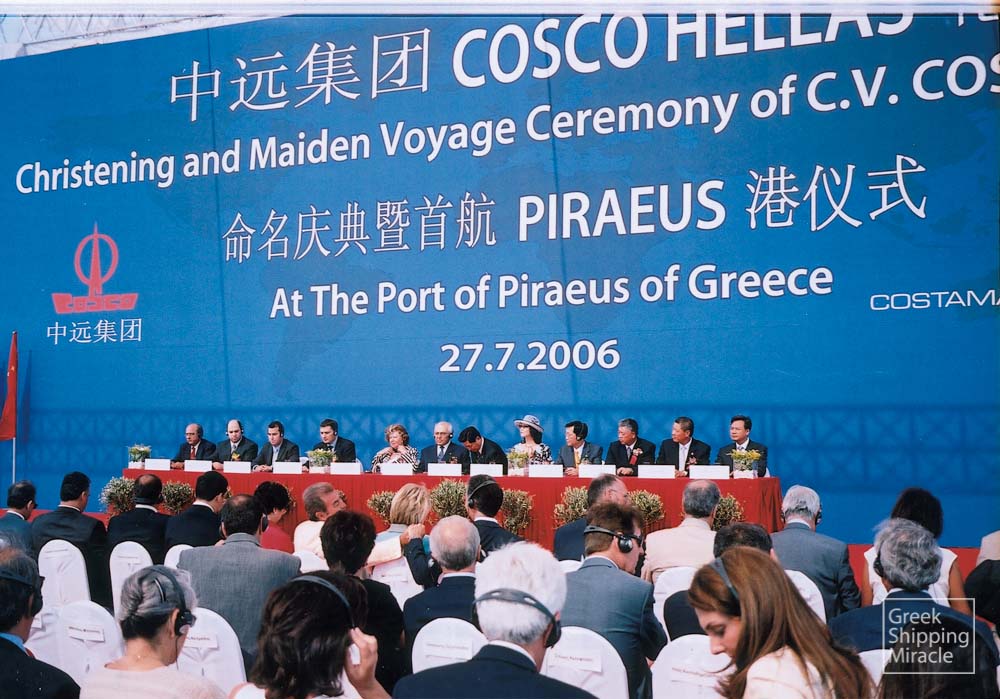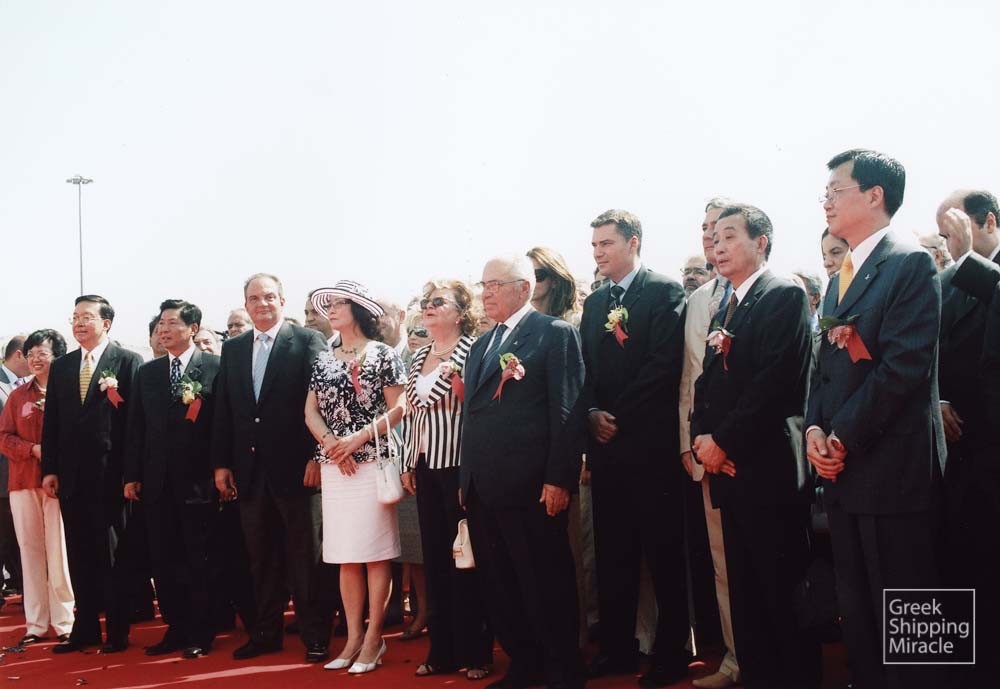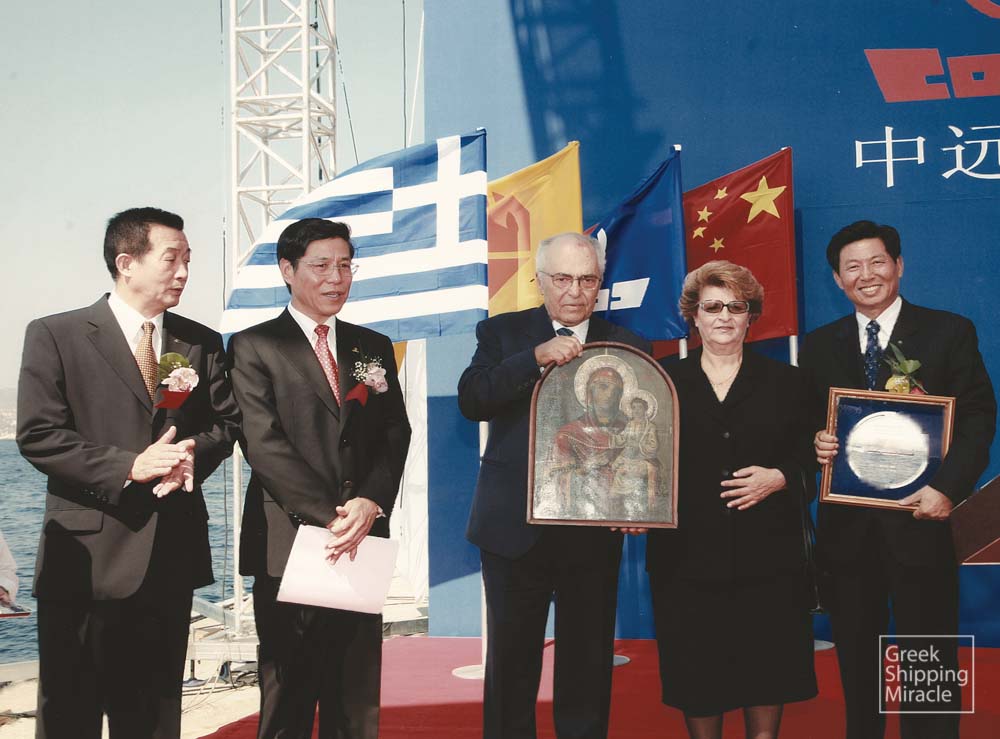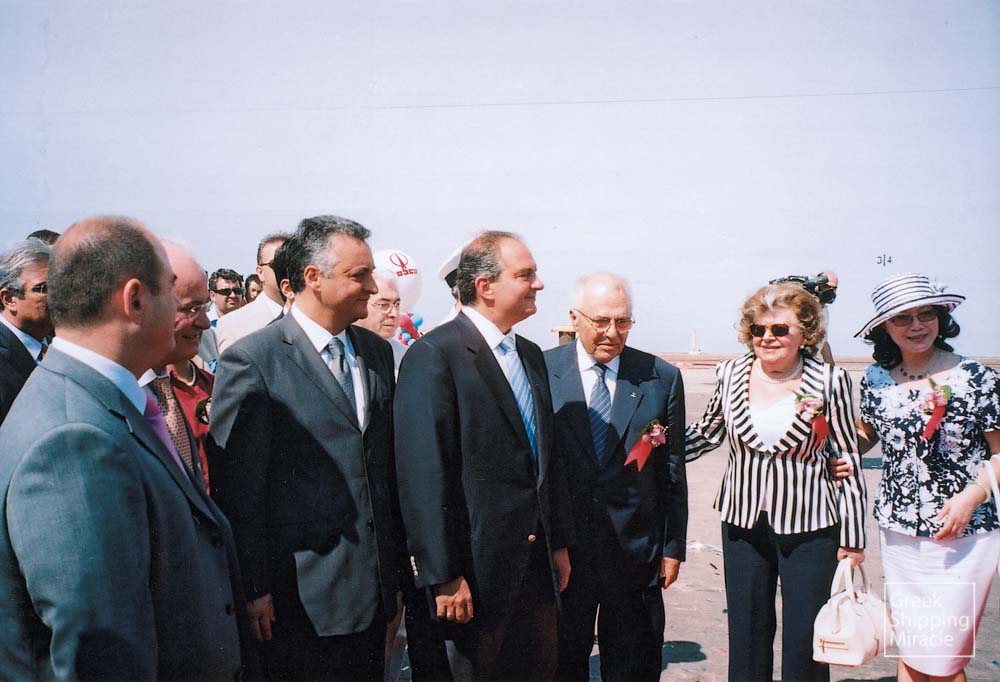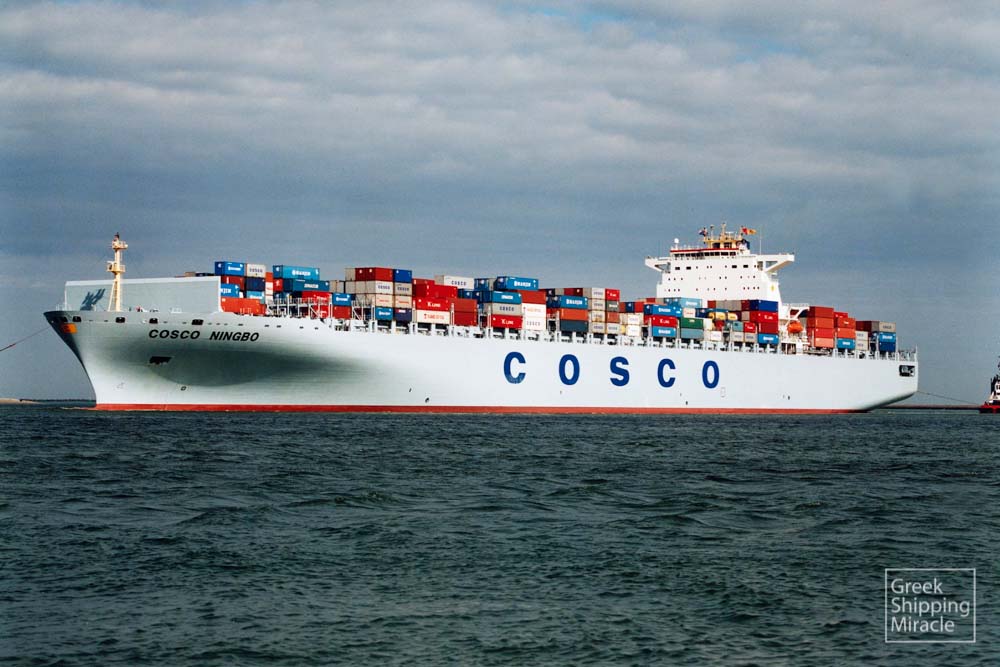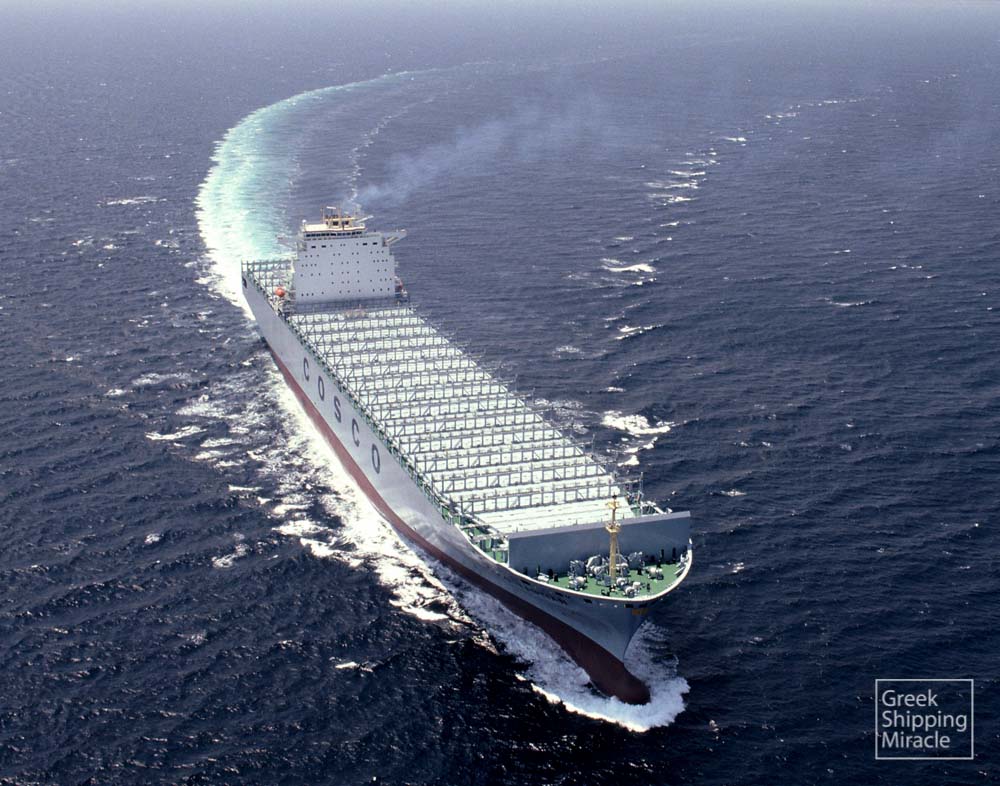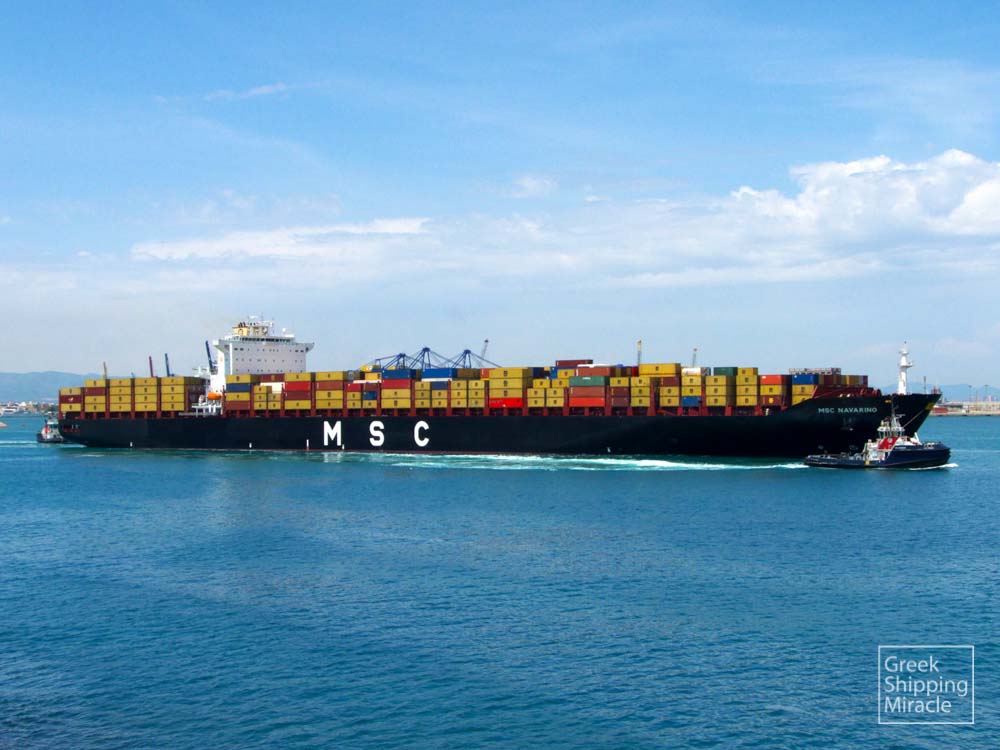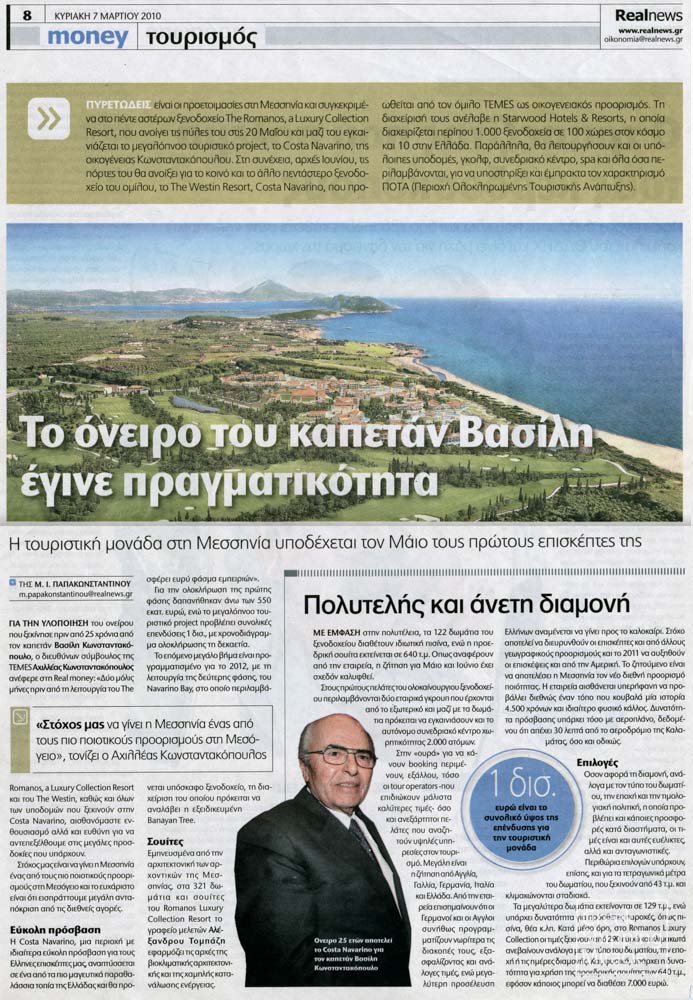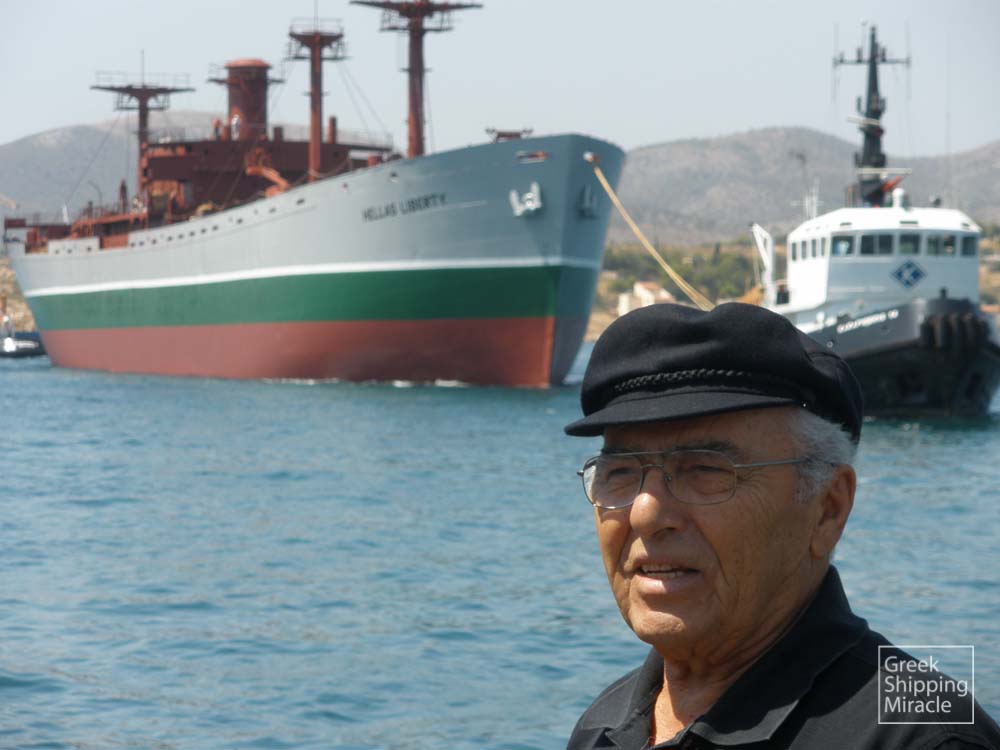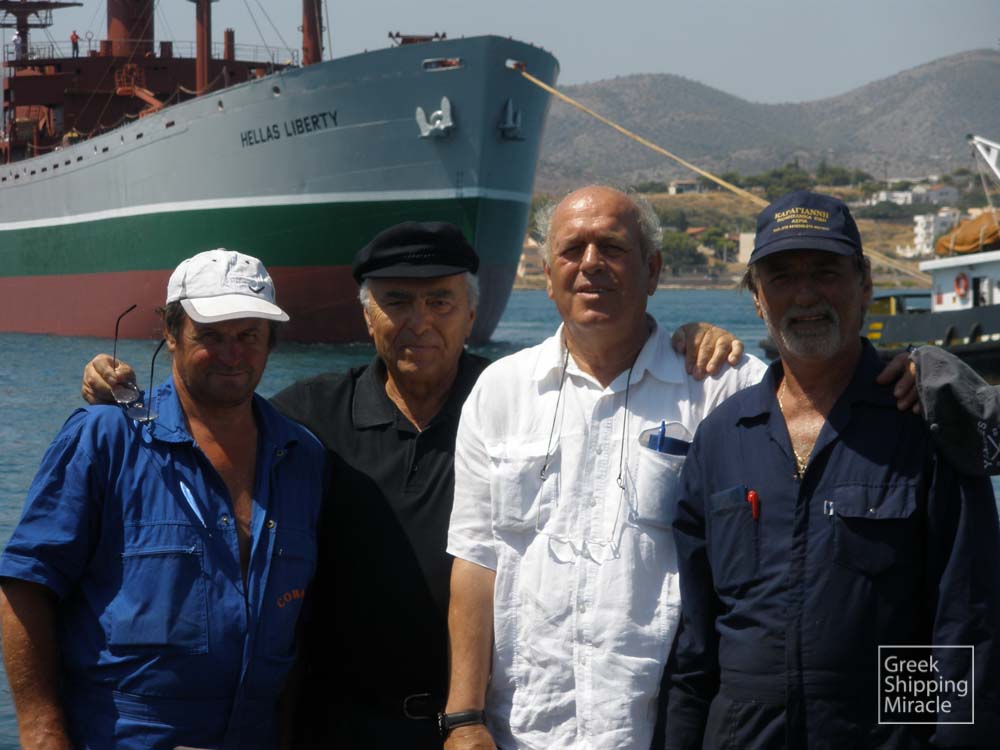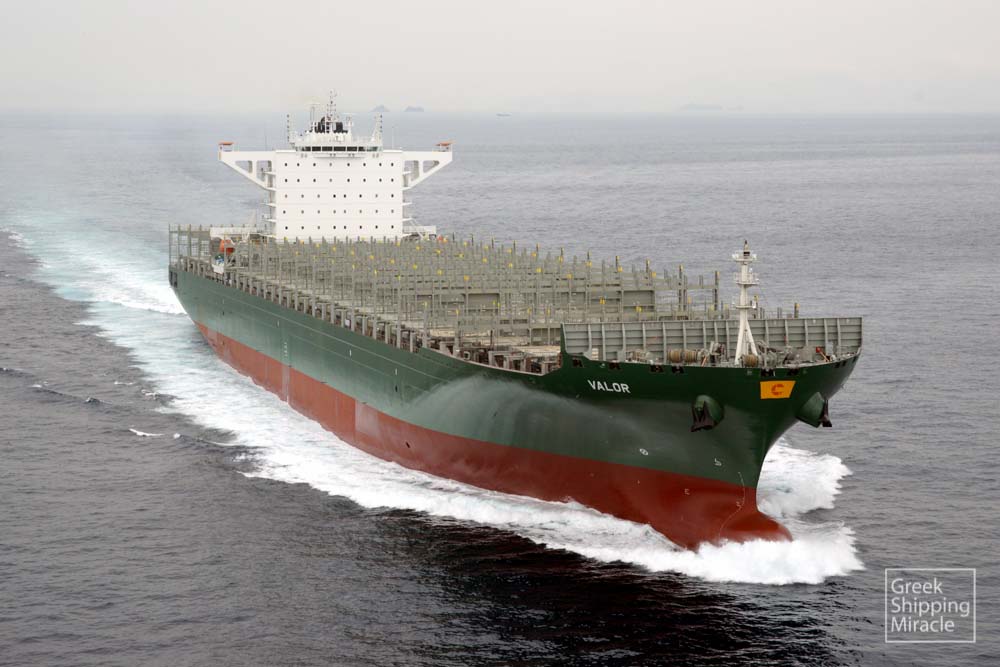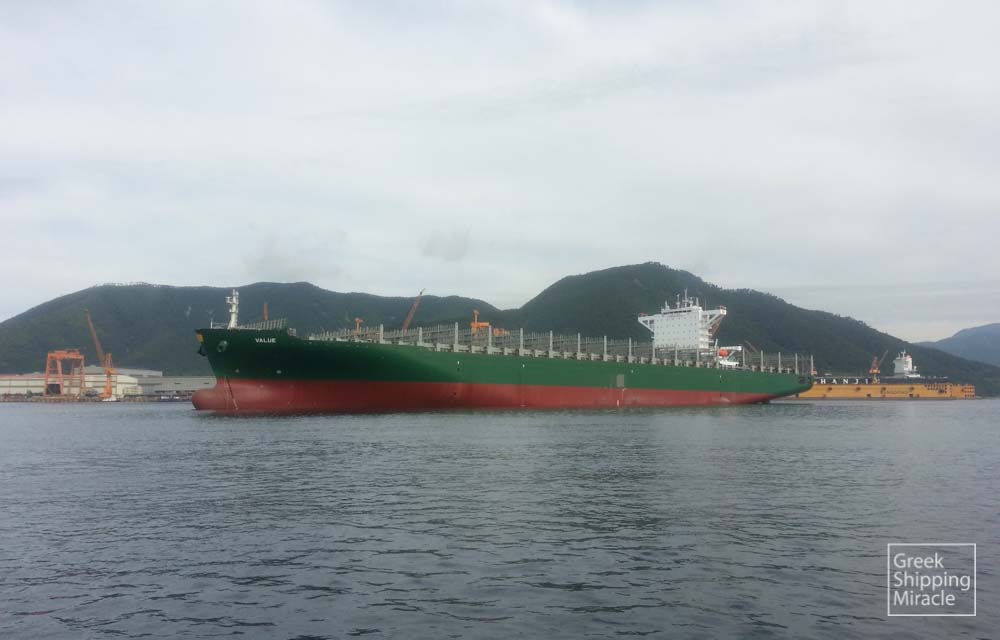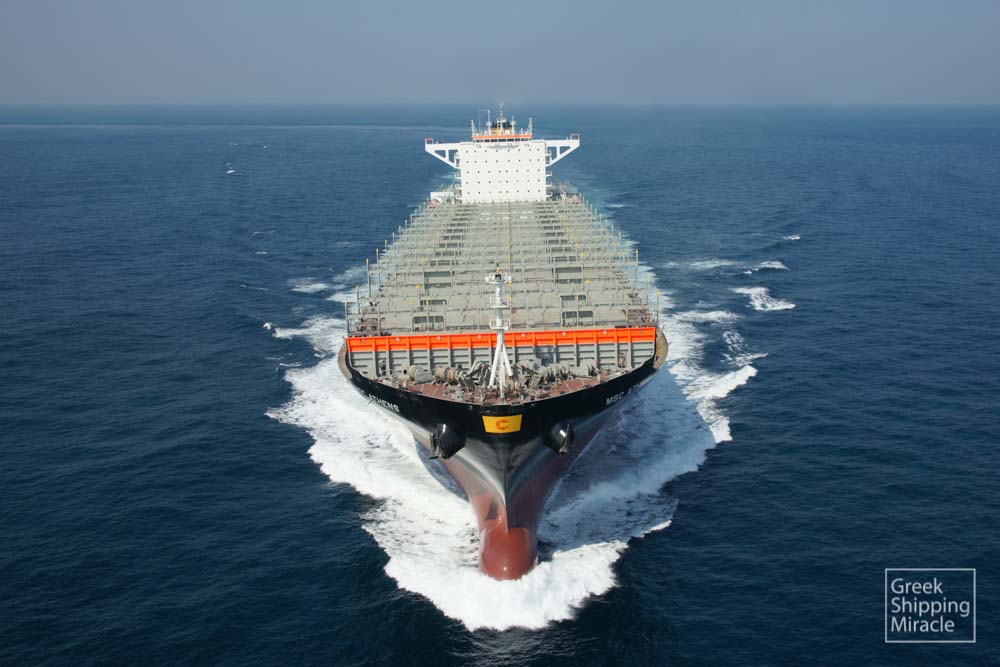COSTAMARE SHIPPING CO. S.A.
Costamare Shipping Co. S.A. was founded by Captain Vassilis C. Constantakopoulos in November 1974.
Born in 1935 in Diavolitsi, a village in Messenia, southwest Peloponnese, Constantakopoulos was the child of a family of farmers who had no connection with the sea, which he only saw for the first time at the age of thirteen. He spent his childhood in Diavolitsi, experiencing the difficult years of World War II and the Greek Civil War that followed, until February 1948, when his family relocated to Athens.
He completed his high school studies attending a night school, as he worked during the day to support the family’s budget. He was waking up at dawn to distribute milk, working for the rest of the day at a button-making shop in the centre of Athens.
In 1953, Greek shipping, which had already grown significantly outside Greece following the decimation of the fleet during World War II, became for the first time after the War a point of focus in the government’s agenda. It was then that 18-year-old Constantakopoulos turned to the seafaring profession. Not having any previous experience, but determined to improve his life in the long-run, he did not hesitate to work without remuneration for at least six months, while covering his expenses. During the time, apart from immigrating, shipping was perhaps the only way for someone to fulfill their dreams.
Vassilis Constantakopoulos managed after twenty years at sea to become master. He was now “Captain Vassilis”, a title of great honour for him that he kept until his early passing in January 2011.
In the early 1960s, Constantakopoulos met Carmen A. Kyritsis, a French literature graduate of the French Institute of Greece. They fell in love, changing their lives and habits in order to spend more time together. Carmen became a flight attendant so that she could spend her days off with Vassilis, while he limited his voyages onboard ships performing Mediterranean voyages. The couple married in 1964 and had three sons, Costis (b. 1969), Achilles (b. 1971) and Christos (b. 1974).
Captain Vassilis continued to serve onboard ships until the early 1970s. As he wanted to spend more time with his family, he decided to pursue an onshore career. His first thought was to open a grocery store, however this plan did not materialise due to his wife’s disagreement. This made him turn towards shipowning, investing all his creativity and hard-earned money.
In late 1972, he participated with several others in the acquisition of a small cargo ship, the Greek-flagged OURANOUPOLIS, built in 1949 as the AUK and acquired by Greek owners in 1965. This venture was only the beginning of a successful and long-lasting shipowning career.
Constantakopoulos’ independent entrance in shipping took place in March 1975 when he acquired a small cargo vessel, built in 1937 in Denmark as the GUDRUN MAERSK for the A.P. Møller Group changing since then several owners. The ship was renamed CARMEN after his beloved wife. After selling the vessel later that year, Costamare Shipping Co. S.A. undertook the management of other vessels that had been acquired in the meantime.
A month after the acquisition of the CARMEN, another cargo ship joined the fleet. The 1944-built CARMEN VITA, as the vessel was renamed, was however sold a few months later. A third vessel, built in 1941, that had also joined the Costamare fleet in 1975, the CARMEN FONTANA, was sold in 1976, while in June 1975 another cargo vessel, built in 1947, was acquired and renamed CARMEN FAUSTA. In late 1976, the CARMEN FAUSTA was renamed KRONOS, inaugurating a trend that would see the names of almost all Costamare ships since then having names starting with the letters “KR”.
Encouraged by the positive results of his first ventures, Captain Vassilis continued expanding the Costamare fleet. By the end of 1980, the company had acquired 11 more vessels, some of which were sold shortly after their acquisition at a profit. This allowed Constantakopoulos to constantly improve the quality of his fleet.
Vassilis Constantakopoulos’ skills were witnessed by his colleagues, particularly those who formed the Hellenic Marine Consortium (HMC) in 1978. In 1980, Costamare joined the HMC, while a short while later, its founder was elected as the organisation’s board secretary. Constantakopoulos won the respect not only of his colleagues, but also that of his lenders, as well as his underwriters, particularly the Swedish Club, serving for several years as a board member. His relationship with the HMC was the forerunner of an extremely fruitful course in public maritime affairs until the end of his life.
The 1980s, which due to a catastrophic crisis in the freight market proved to be one of the most turbulent periods in post-war maritime history, was decisive for Costamare’s development. With the intuition of a prudent captain and entrepreneur, Constantakopoulos decided not to follow an aggressive fleet expansion strategy in the early 1980s, with only few acquisitions and disposals, entering the bulk carrier sector as well.
Of particular importance for Costamare’s growth proved to be the acquisition of four 20 to 25-year old bulk carriers in early 1984. Those vessels having completed their life cycle didn’t have a meaningful future, especially in a poor market like the one experienced during that time. Nevertheless, Captain Vassilis obtained them at bargain prices, equal to prevailing scrap prices in Europe, managing at the same time to find eastbound cargoes for the ships. This move was profitable not only because of the vessels’ further trading, but most importantly due to their sale to demolition yards in Asia, where scrap prices were significantly higher than those in Europe. The proceeds from the scrapping of the elderly bulkers, during a time when the concept of profit in world shipping was almost non-existing, allowed the acquisition in 1985 of the company’s first container ships. This venture was the first step in turning Costamare into the world’s largest private container ship operator.
One of the victims of the 1980s crisis was the Greek liner company Hellenic Lines of the Callimanopulos family, which had heavily invested just before the outbreak of the crisis, in order to complete its transition into container ships. The company went into receivership in 1984 after half a century of successful operations, with the company’s lenders taking control of its vessels, four of which were acquired in 1985 by Costamare. The CARMEN SERENA, the CARMEN VITA, the CARMEN FONTANA and the CARMEN FORTUNA, as the container ships were renamed, were placed under the Greek flag, marking the beginning of a new chapter in Costamare’s history and at the same time ongoing Greek presence in container ships, which were by that time rapidly replacing conventional cargo ships, particularly in liner trades.
Even though Captain Vassilis’ project was daring, it was based on solid foundations. Thanks to his contacts and his reputation as a first-class operator and provider of high quality service to charterers, he managed to charter without delay the newly-acquired vessels to well-established companies, such as Israeli-based Zim. Over the coming years, Costamare expanded its fleet through the acquisition of secondhand container carriers, which were chartered out to major liners. These moves led to the company’s gradual disengagement from the bulk carrier sector. The last bulker to join the fleet was the KREON in 1991, which remained under Costamare’s management until January 1995, marking the end of a 20-year journey in the dry cargo arena. Costamare from then on would be focusing exclusively in container ships.
A few months before the sale of the KREON, Captain Vassilis decided to put into action his plan to turn Costamare into a dynamic container ship operator. Foreseeing the world fleet’s renewal requirements, following a decade of limited newbuilding activity – while observing the transformation of South Korea into the world’s largest shipbuilding power – he took advantage of low prices at the end of 1994, placing at Samsung Heavy Industries the group’s first newbuilding order.
The project involved the construction of three 3,500 teu container ships. The MANZANILLO, the SINALOA and the CHETUMAL, as the vessels were named, were chartered out before their delivery in 1996 to Transportacion Maritima Mexicana, allowing Costamare to plan its next newbuilding move. A short while later, the company ordered ten high specification container ships – five 6,600 teu, three 4,850 teu and two 5,552 teu – at Hyundai Heavy Industries in Ulsan, South Korea. The vessels were ordered against long-term time-charter employment to Sealand (Sealand-Maersk), Hapag-Lloyd and CSCL respectively.
Nevertheless, Captain Vassilis’ activities were not limited to Costamare’s expansion. Since 1987 he was board member of the Union of Greek Shipowners, while also serving as president of Germanischer Lloyd’s Greek committee, as well as member of the Greek committees of Bureau Veritas and Lloyd’s Register. He also embraced the efforts of his colleague George P. Livanos, who had established in 1982 HELMEPA (Hellenic Marine Environment Protection Association), a non-profit organisation aiming to promote the protection of the marine environment based on the voluntary co-operation of shipowners and seafarers. Constantakopoulos became an active member of HELMEPA in 1985, while serving over the years as member, vice-chairman and chairman of the organisation’s board. Moreover, Vassilis Constantakopoulos was a believer of the value of education for younger generations, which led to the establishment of HELMEPA Junior in 1993, allowing children to develop environmental consciousness.
Despite Constantakopoulos’ career being closely linked to the sea, one his greatest achievements was what became known as the Costa Navarino, an innovative tourism project that transformed Messenia, the wider region around his hometown. This project originated from his belief that apart from shipping, the development of a first-class tourism industry was essential for Greece’s further growth.
The ambitious plan began in the early 1980s, when Captain Vassilis identified a suitable spot and starting from 1982 began acquiring dozens of neighbouring estates. After the signing of around 1,000 contracts, he ended up owning an area of about 1,100 hectares. That would be used to create a holiday resort with three hotels and high-specification golf courses that could also be used for international golf tournaments. The project, whose total cost was over one billion euros, would mainly employ locals and would also benefit local producers, as their products would be consumed not only in Greece but also in several other countries, through the formation of a new local brand.
Costa Navarino, the largest tourism-related investment to date in Greece, opened its doors in 2010 under the direction and supervision of Constantakopoulos’ son Achilles. In recognition of his contribution, the local authorities named in 2012, a year after his death, the international airport of Kalamata –Messenia’s capital– “Captain Vassilis Constantakopoulos”.
Perhaps one of Constantakopoulos’ best calculated moves were his succession plans. As he often said, his ventures were based on his desire to help his sons to further grow the family’s operations. Therefore, shortly after Captain Vassilis turned 60, the new Constantakopoulos generation took over. His eldest son Costis assumed Costamare’s management, while the company relocated to state of the art offices on Syngrou Avenue in Athens. During that time, Costamare was going from strength to strength thanks to many years of hard work, with newbuilding deliveries continuing unabated.
A landmark moment for both Costamare and its founder was the naming ceremony of the newly-built container ship COSCO HELLAS in Piraeus on July 27, 2006. Prime Minister Kostas Karamanlis, who attended the ceremony, praised in his speech Constantakopoulos’ achievements. The ultra large container ship was chartered out for 12 years to Chinese liner COSCO, together with another four sister vessels built by Hyundai Heavy Industries. The close relationship that Costamare developed with the government-owned company coupled with the long-standing ties that other Greek shipowners formed with Chinese shipping industry representatives, led to the establishment of a closer co-operation between Greece and China, the culmination of which was COSCO’s major investment in Piraeus, which transformed the city’s port into major transhipment hub.
The activities undertaken by Captain Vassilis were not limited to the above. He was a source of inspiration and creativity, while providing many jobs. Apart from Costamare and the Costa Navarino, he established in northern Greece Geo Hellas, a minerals mining and processing facility, whose management was undertaken by his third son, Christos. Captain Vassilis was also founder of Costa Cruising, a company specialising in the yacht sector, and was also one of the founders of Aegean Airlines.
Apart from his business activities, Vassilis Constantakopoulos developed significant public benefit activity, mainly related to seamanship, Greek heritage, ecology and education. He maintained close ties with the Greek diaspora, mainly with the Greek American community, participating in boards of organisations, such as the Angelo K. Tsakopoulos Hellenic Center and the Vryonis Center for the Study of Hellenism in California, while he was a member of the United Hellenic American Congress (UHAC). Moreover, Constantakopoulos and his wife Carmen founded in 2000 the Centre for Hellenic Studies at the Beijing University, while funding the construction of St. Dionysios Church in Pusan, South Korea.
Keeping a low profile, the couple made several donations to charity, including to victims of the 1999 Athens earthquake and Messenia’s forest fires, as well as to the THORAX Research Center of Intensive and Emergency Thoracic Medicine and the “Strofi” rehabilitation centre. Throughout his many donations, Constantakopoulos demonstrated great interest and was personally involved in each matter.
A keen supporter of Greece’s maritime tradition, Captain Vassilis funded – almost in its entirety – the restoration of a laid-up Liberty-type ship donated by the United States government to Greece. The HELLAS LIBERTY, as the vessel was renamed, is the only Liberty-type vessel preserved in commercial attire globally, operating as a floating museum. Even though he never served onboard a Liberty, Constantakopoulos, recognising the importance of Liberty ships in the evolution of Greek shipping, also dedicated much of his time to supervise the vessel’s conversion.
Apart from his devotion to his wife Carmen and their three sons, Constantakopoulos loved his country, encouraging his colleagues to offer their support following the onset of the Greek depression in late 2009. Moreover, throughout his career, he was faithful to the Greek registry and Greek seafarers. On several occasions, he praised the contribution of his former colleagues, like for example during a speech in 1996, when referring to the reasons why Greek shipowners should select the Greek flag, he made the following remark: “Greece’s merchant shipping certainly relied on foreign banks’ funds, but the key to its success was the faith, devotion and self-sacrifice of Greek seamen. This is something that should not be forgotten”.
